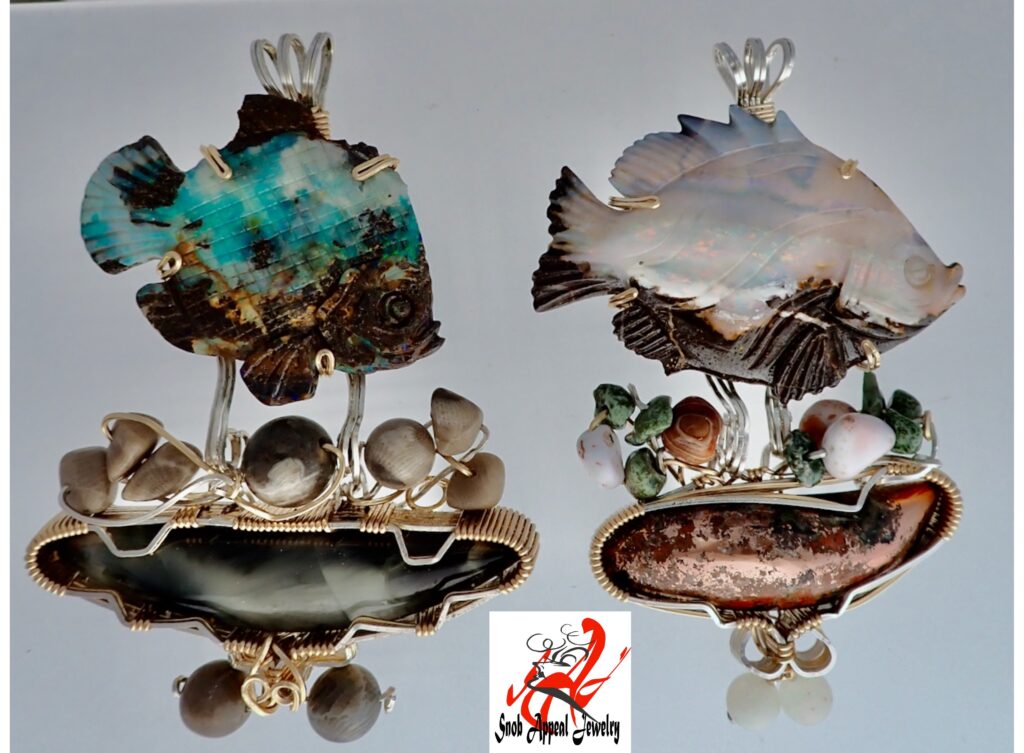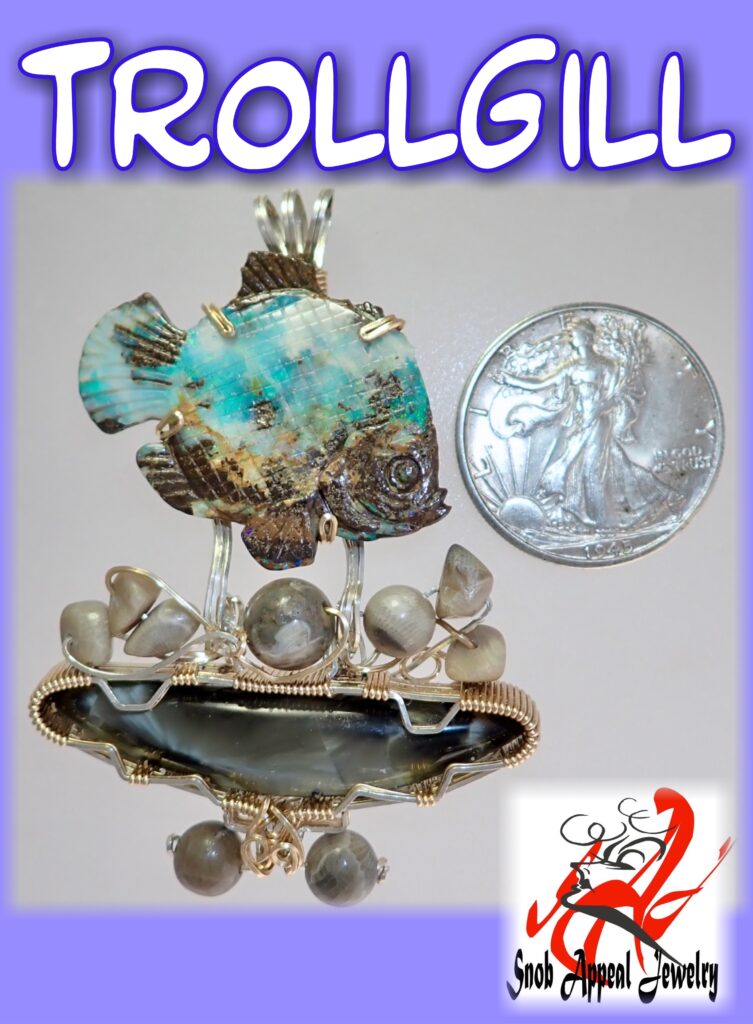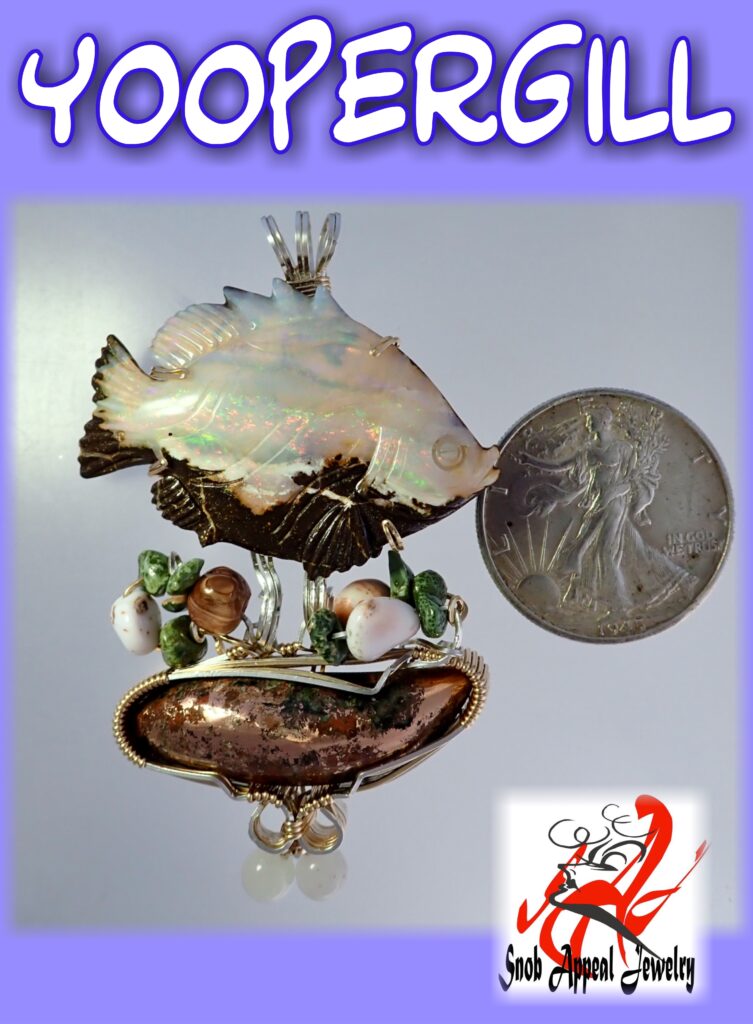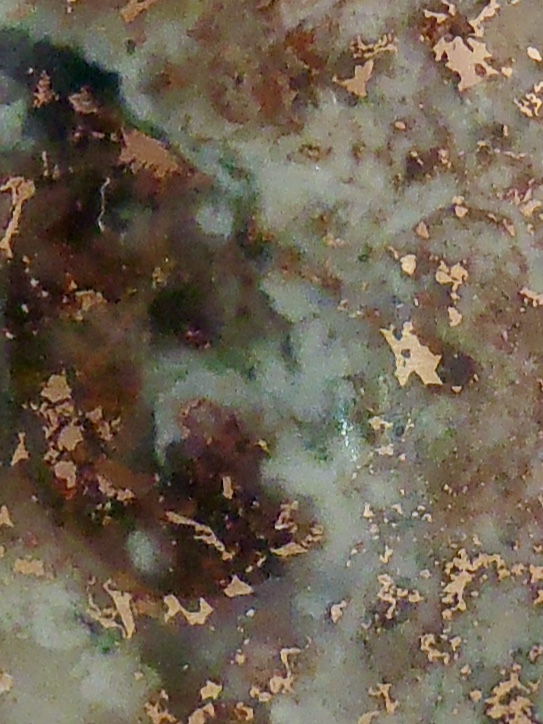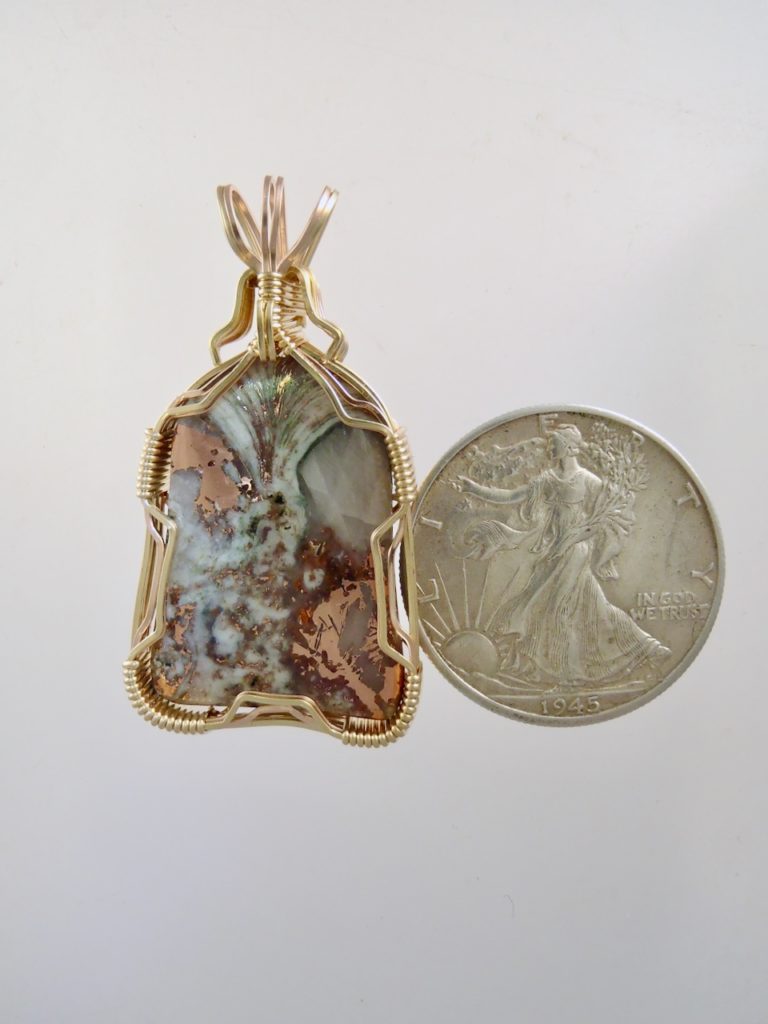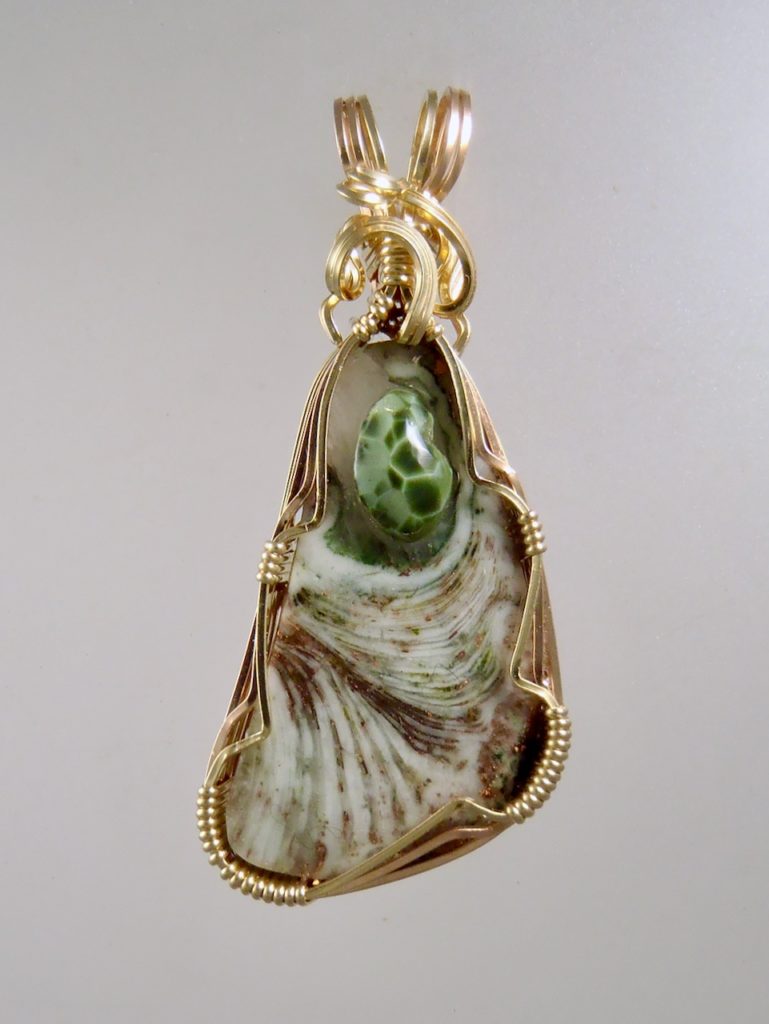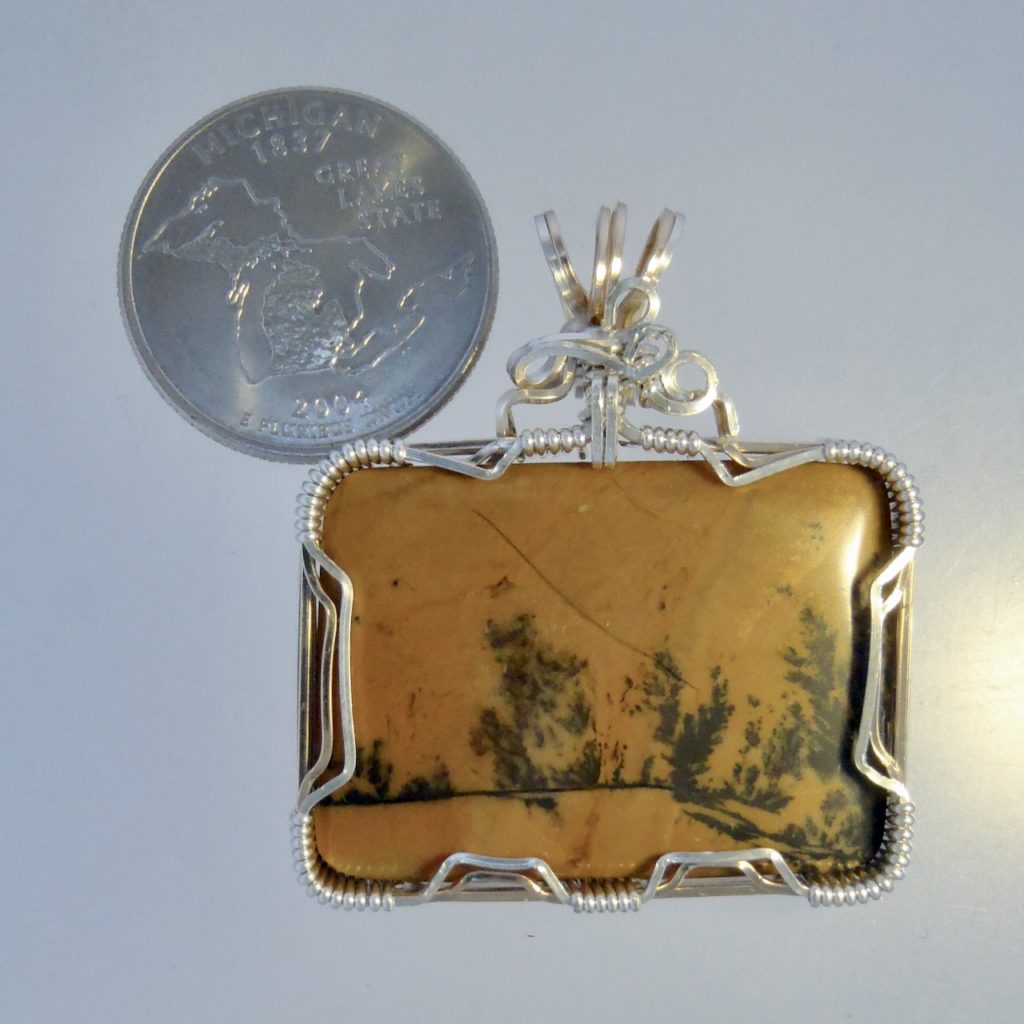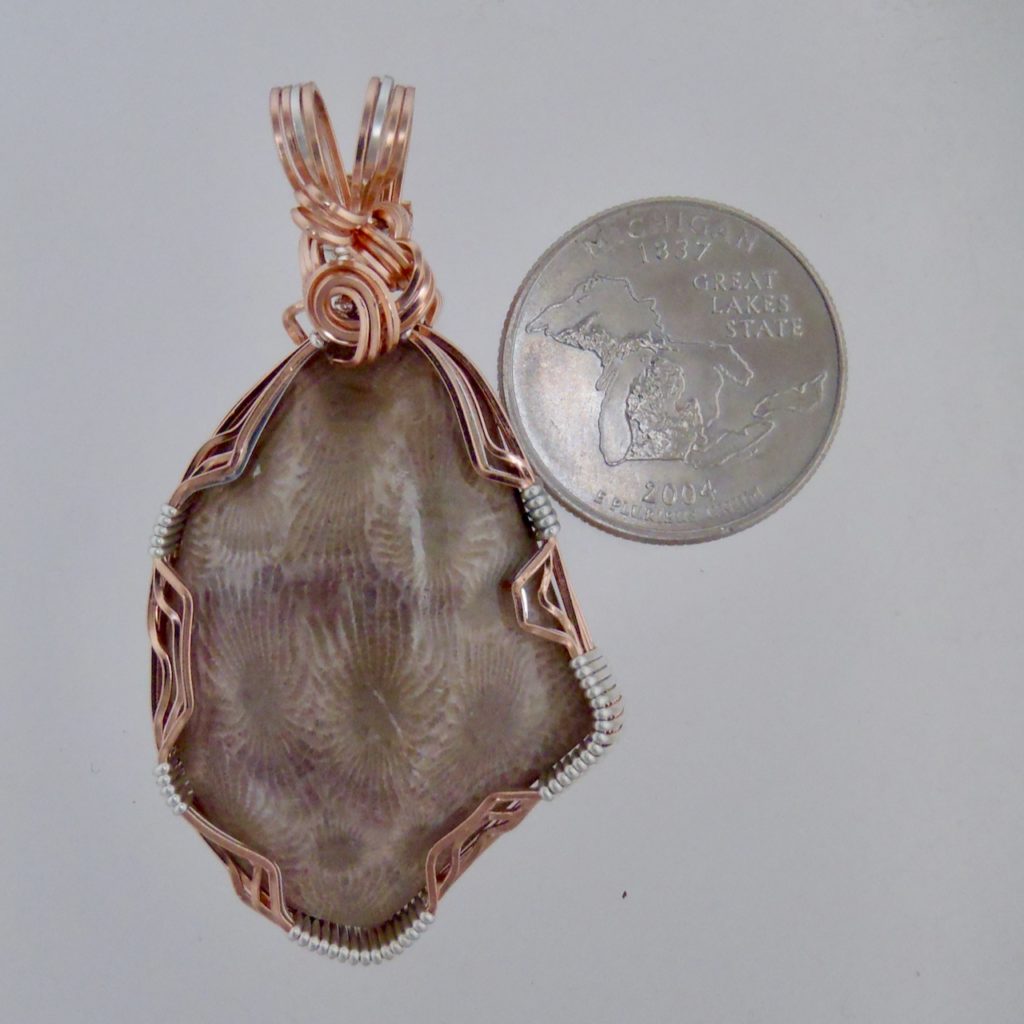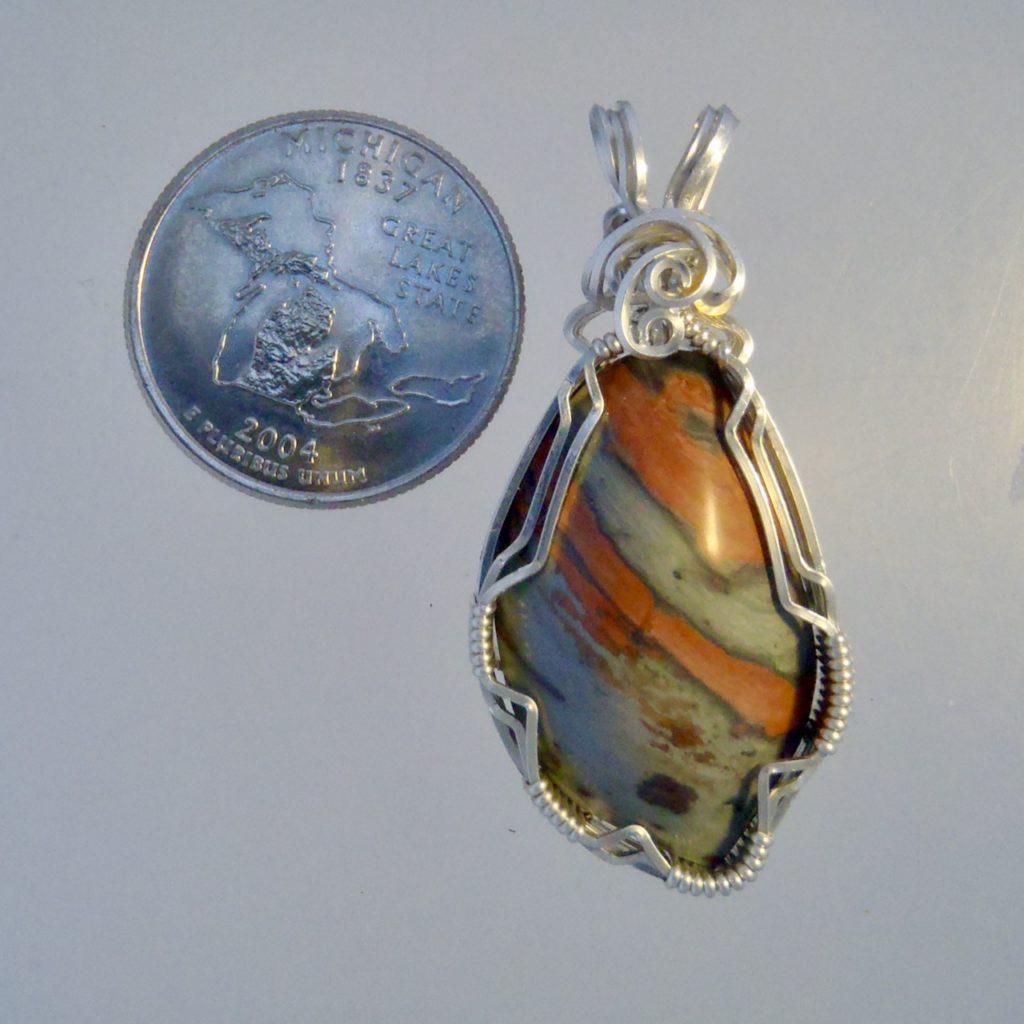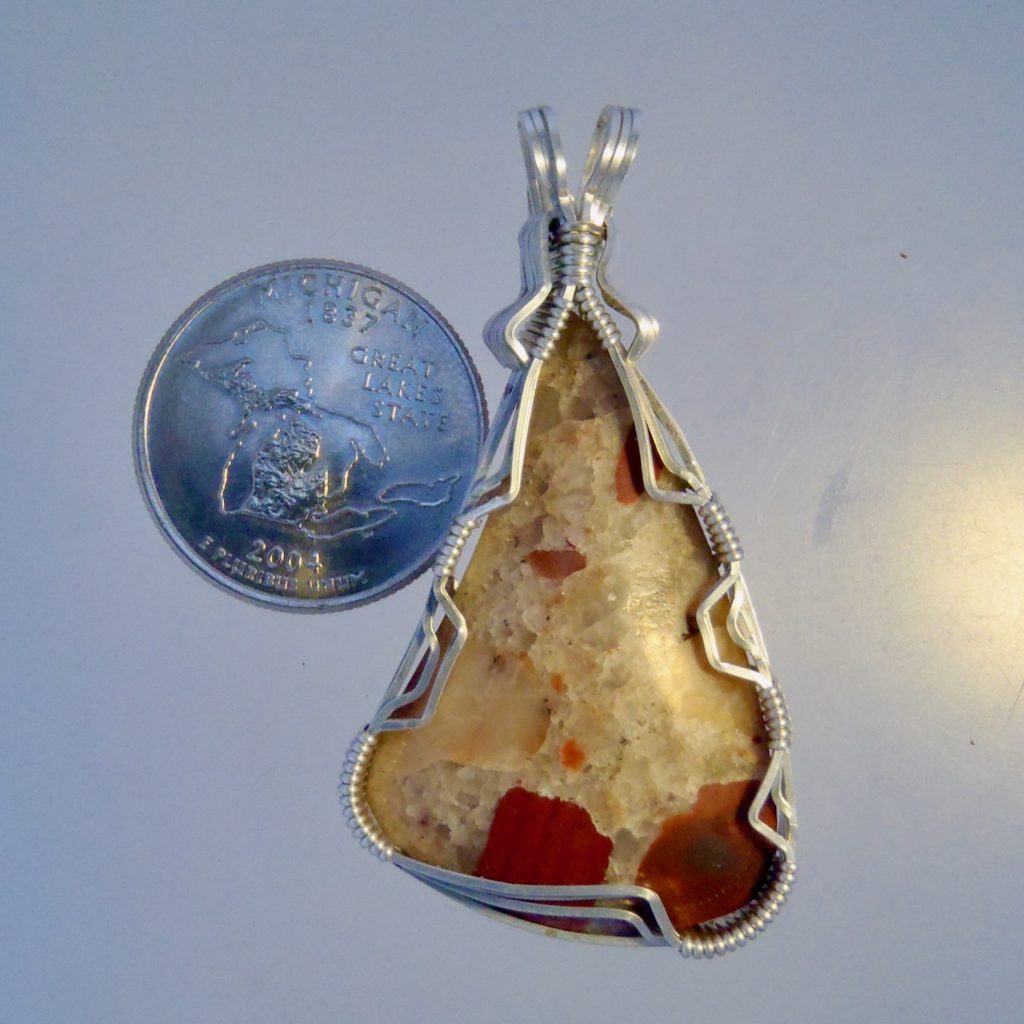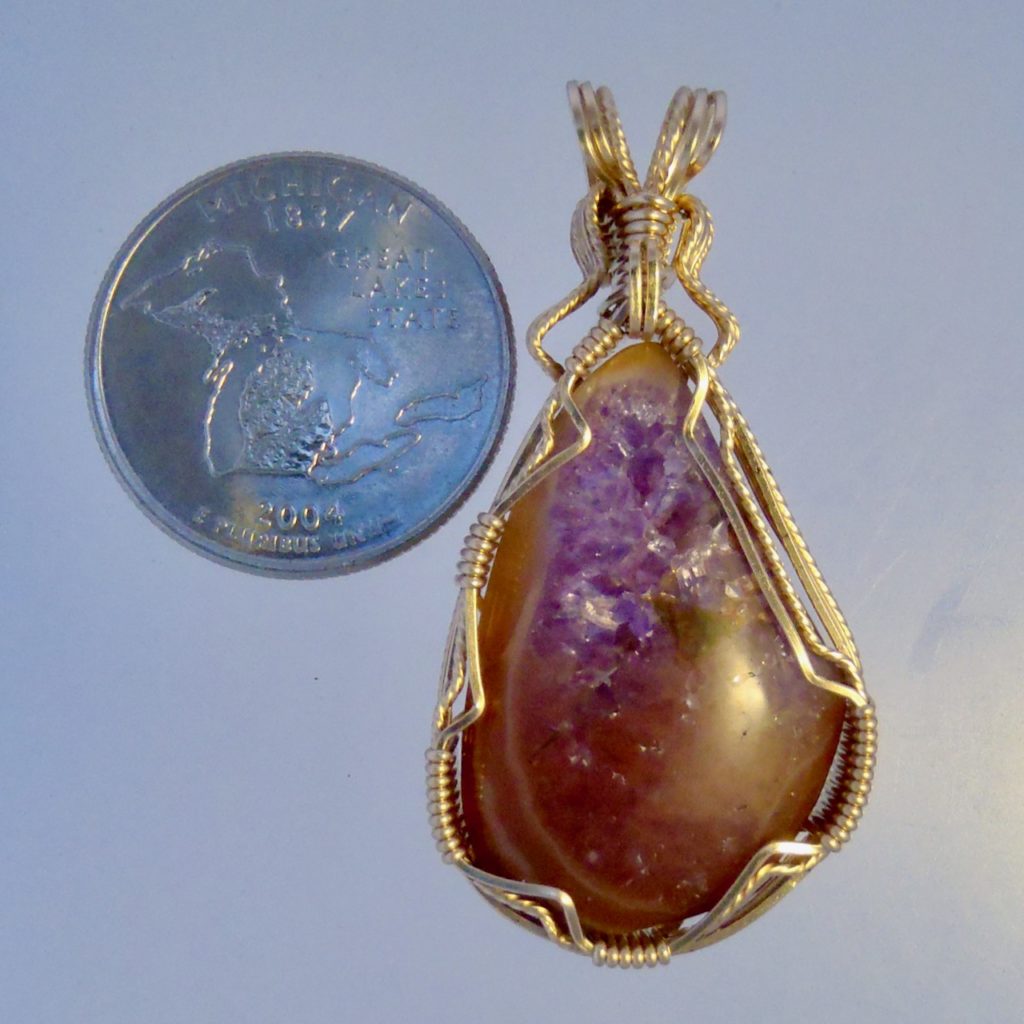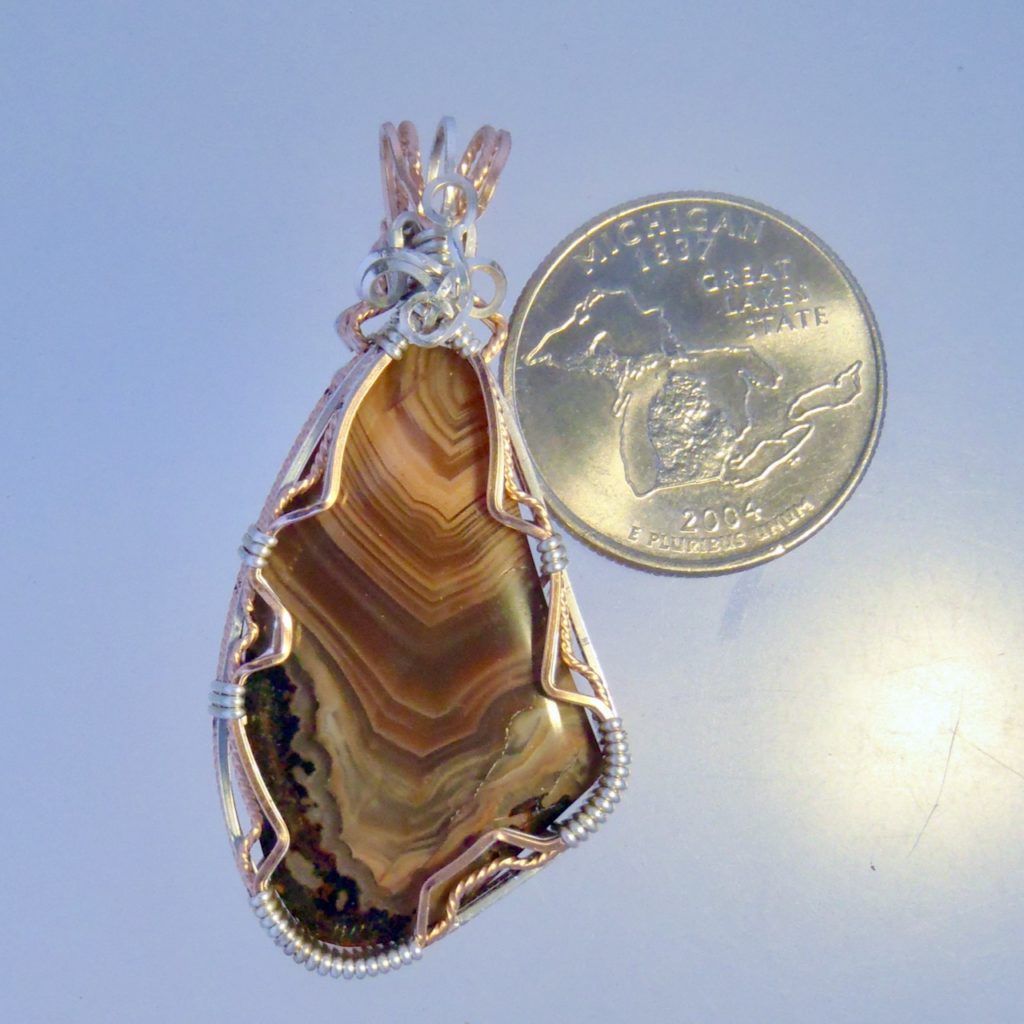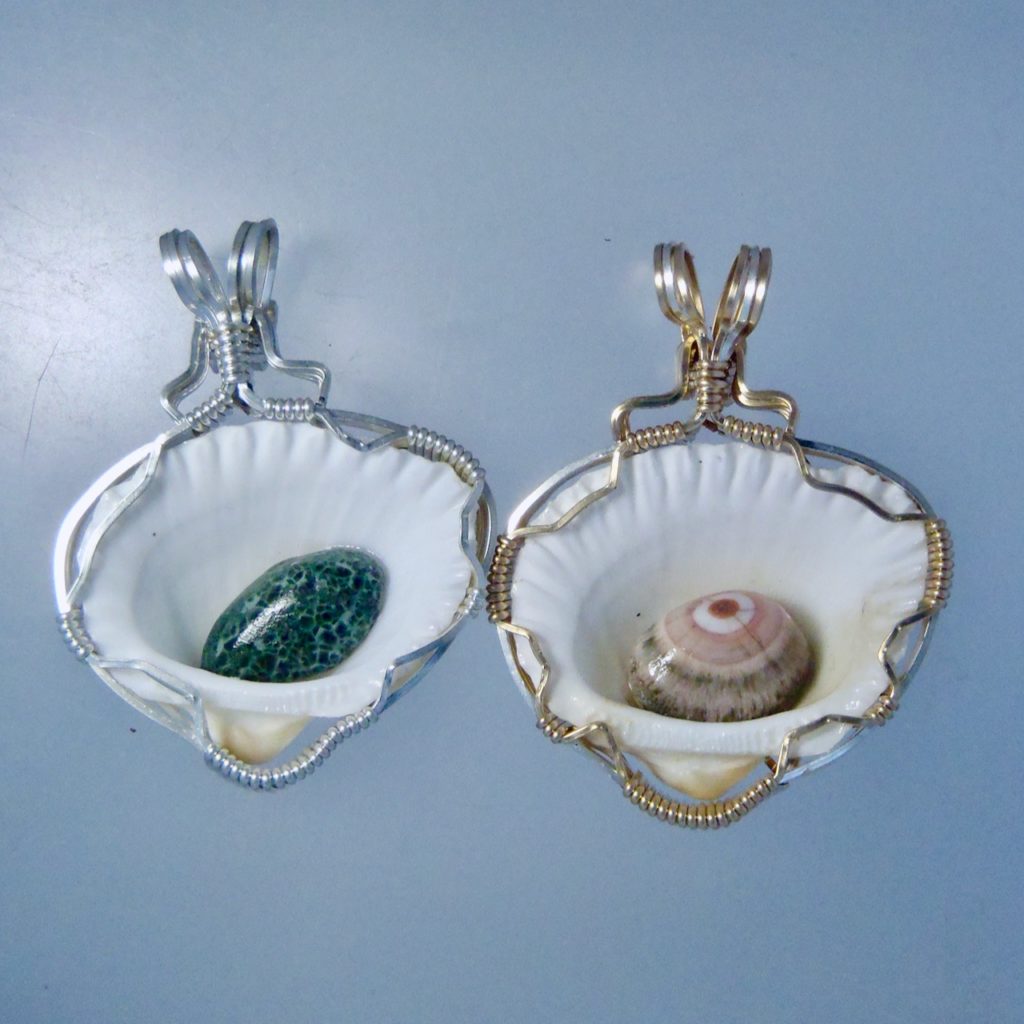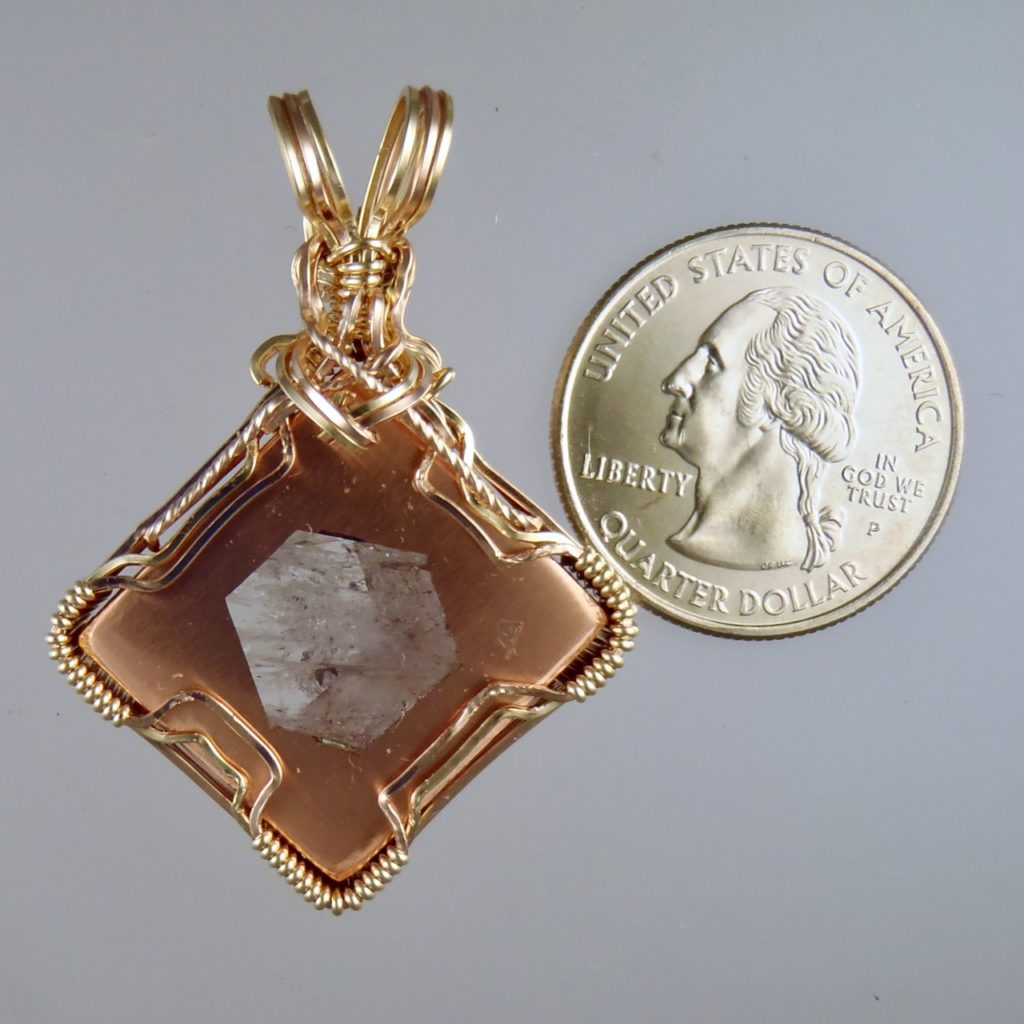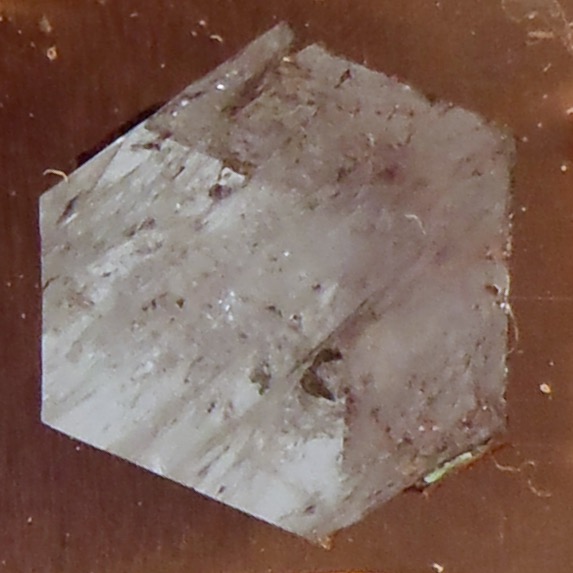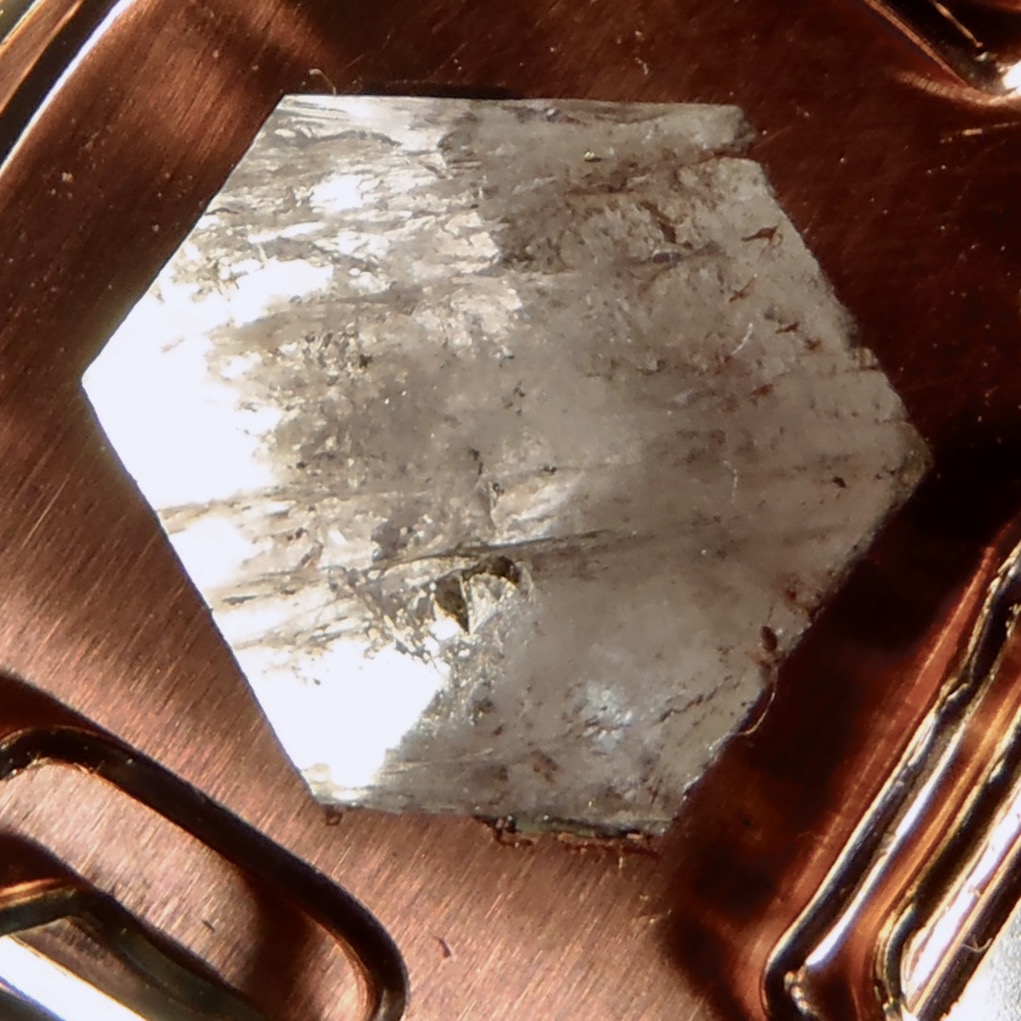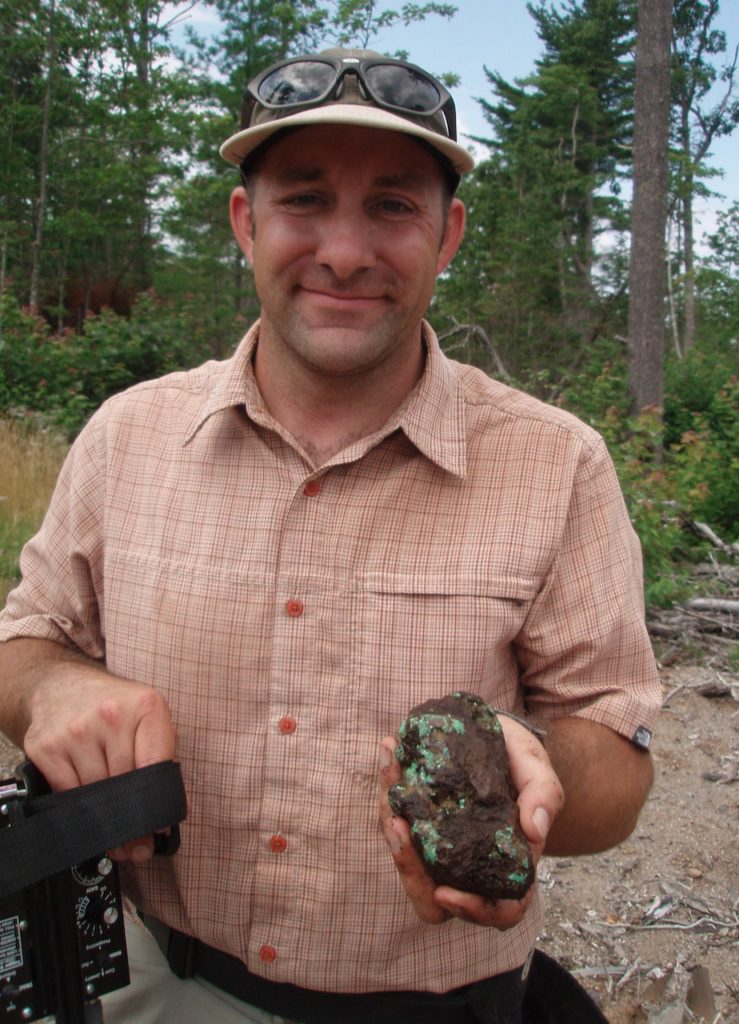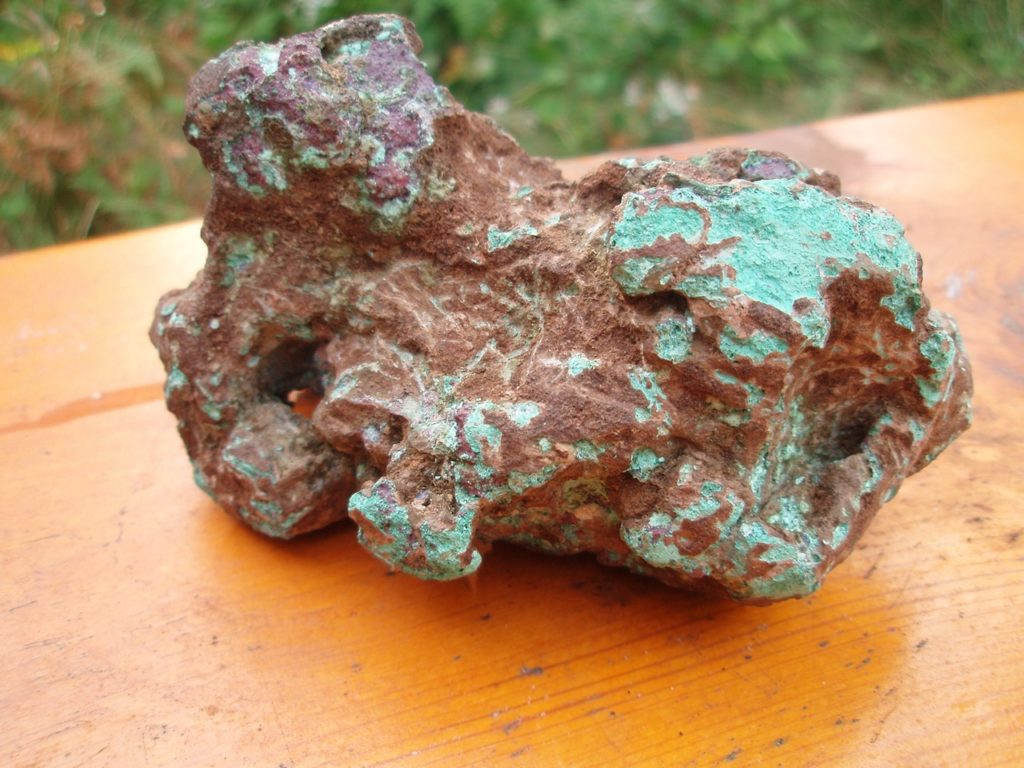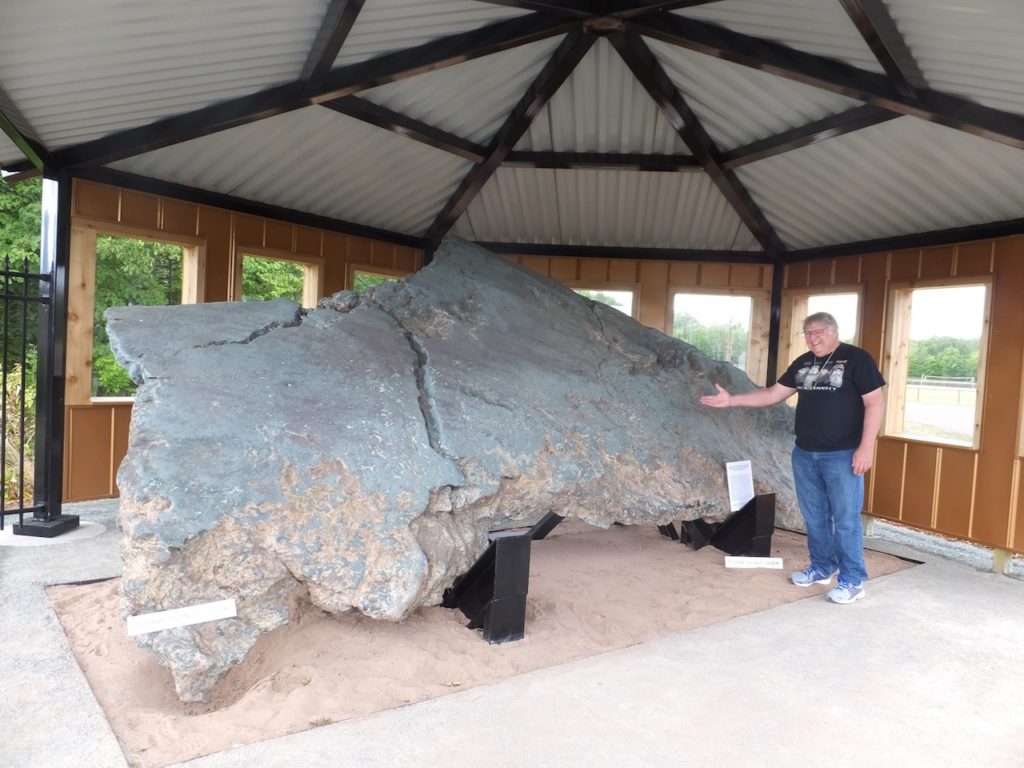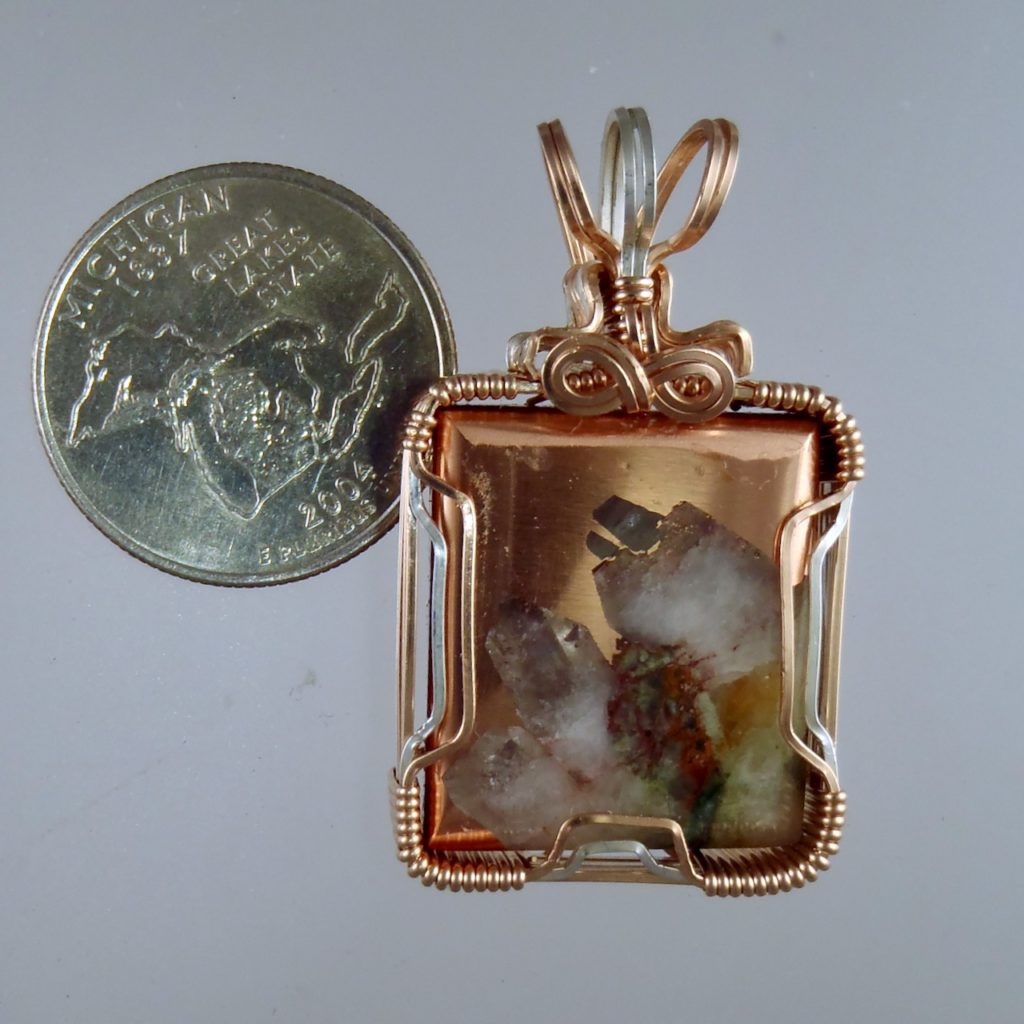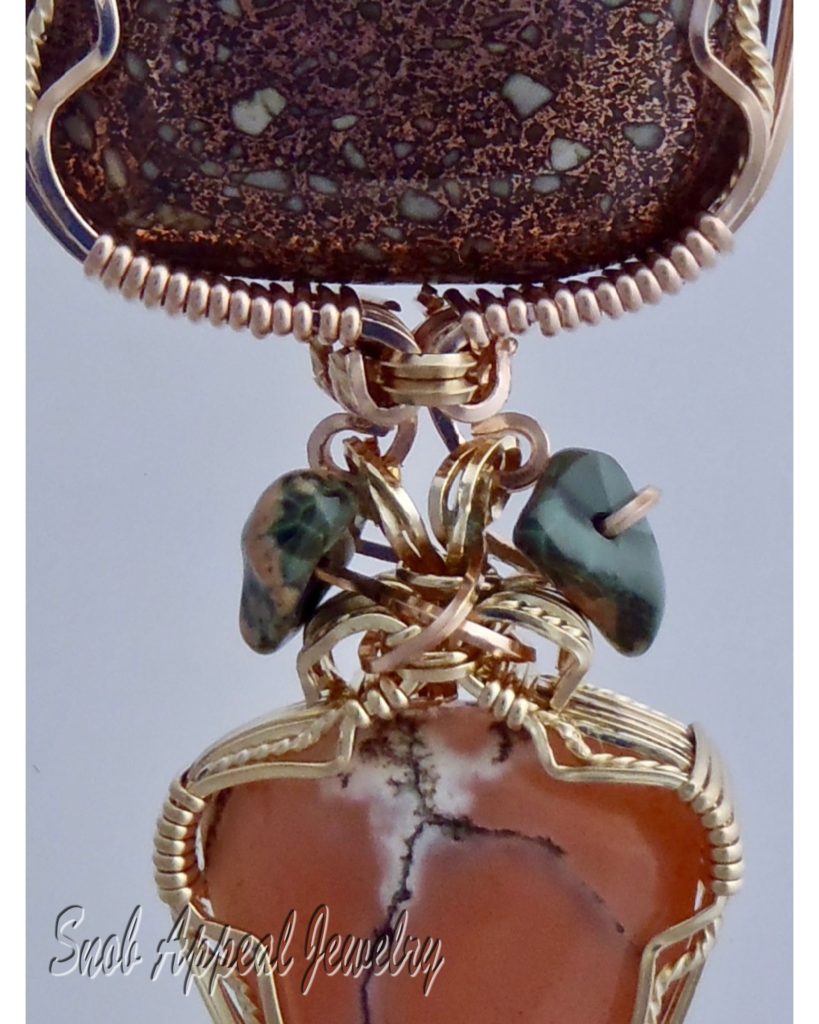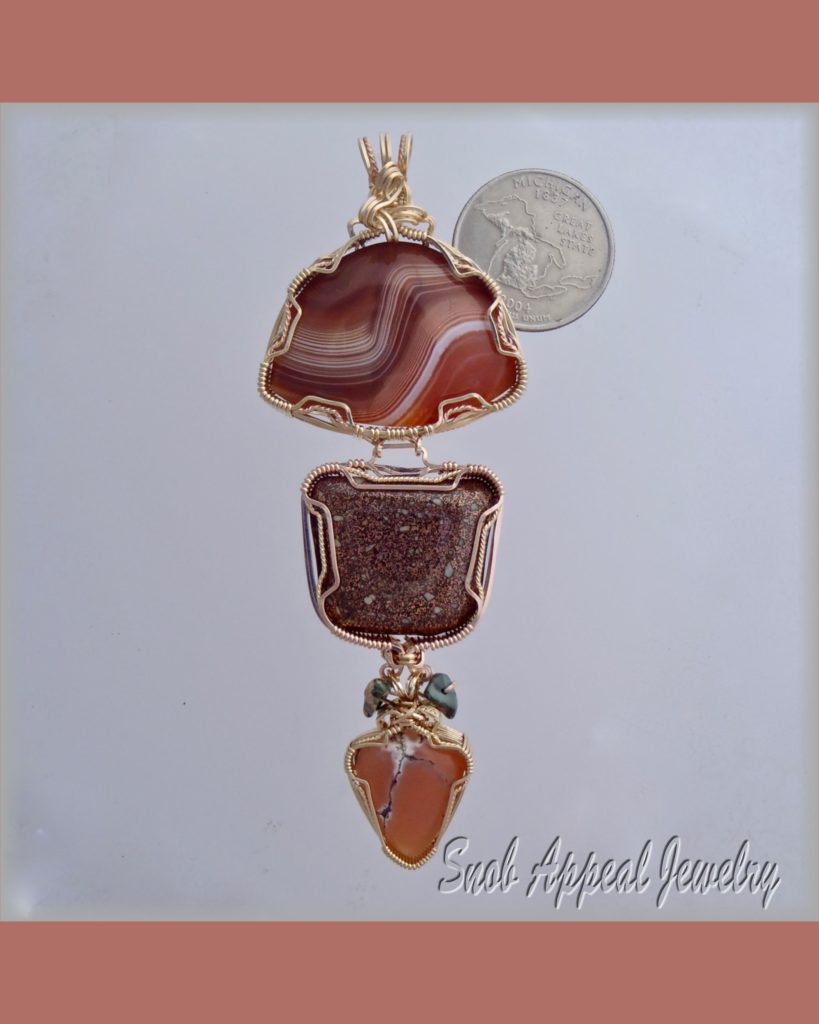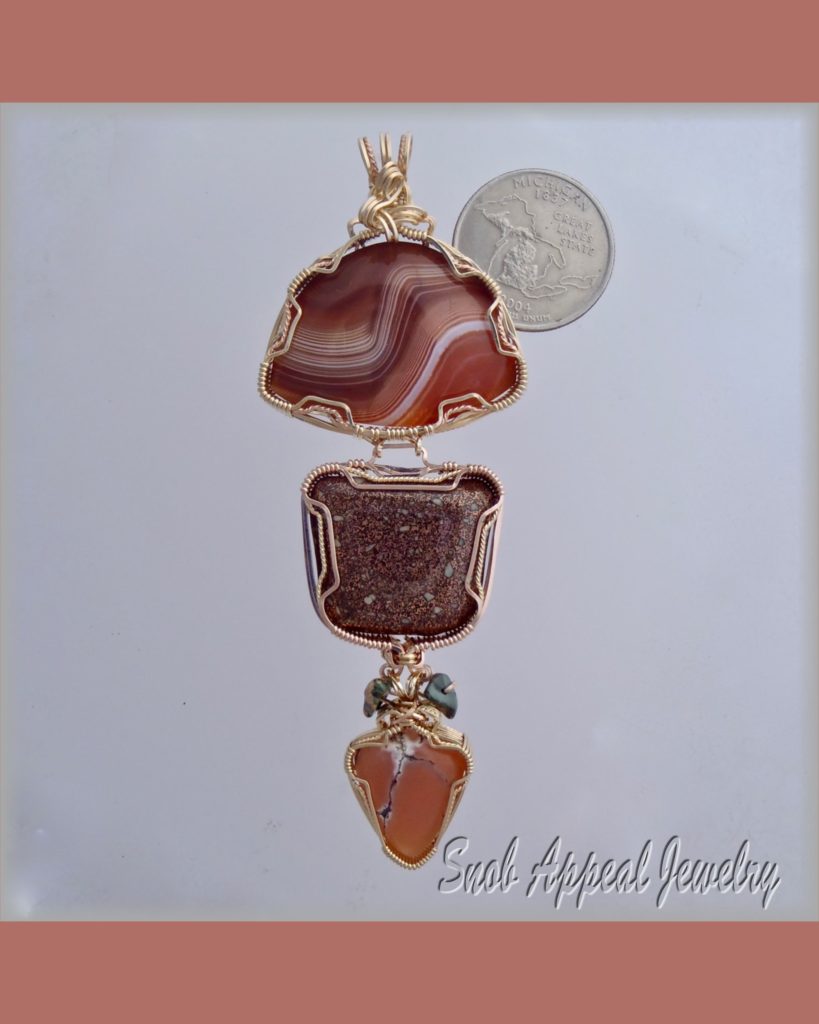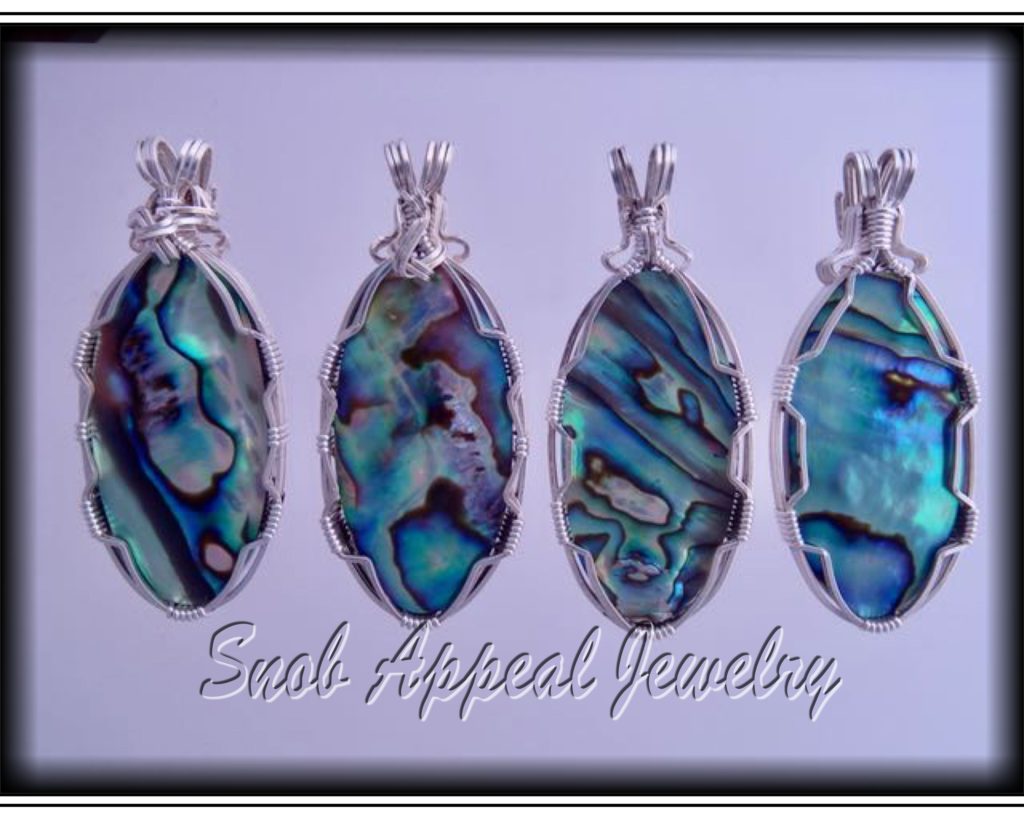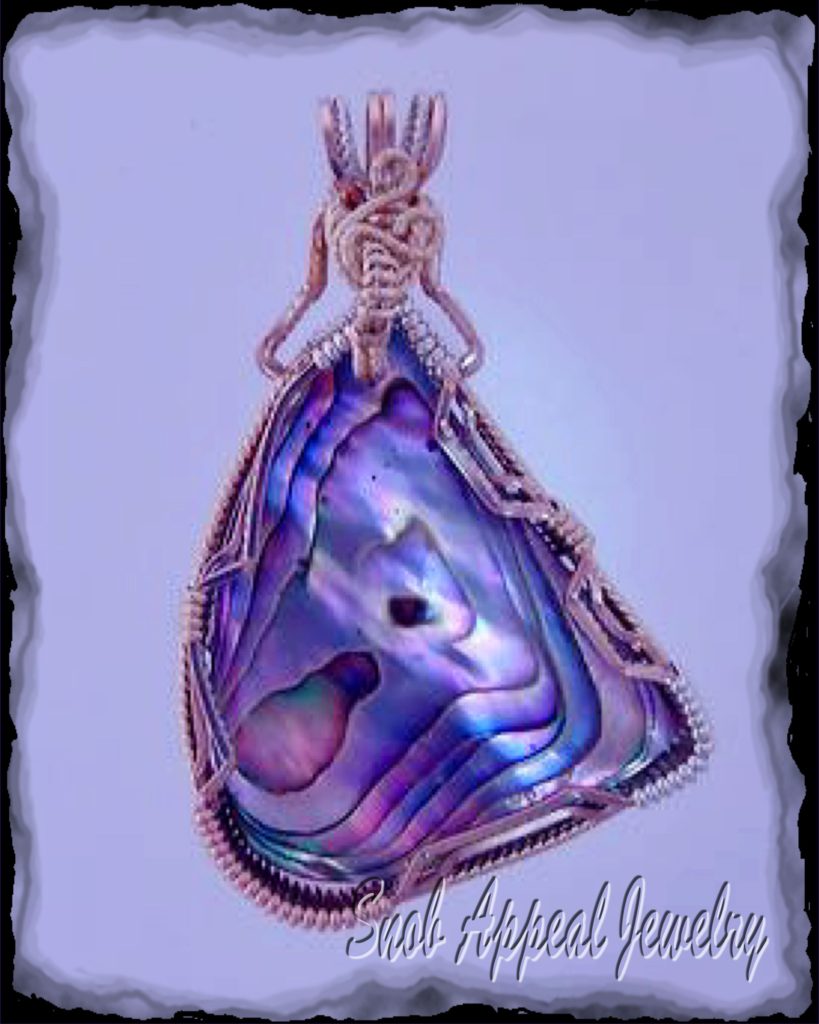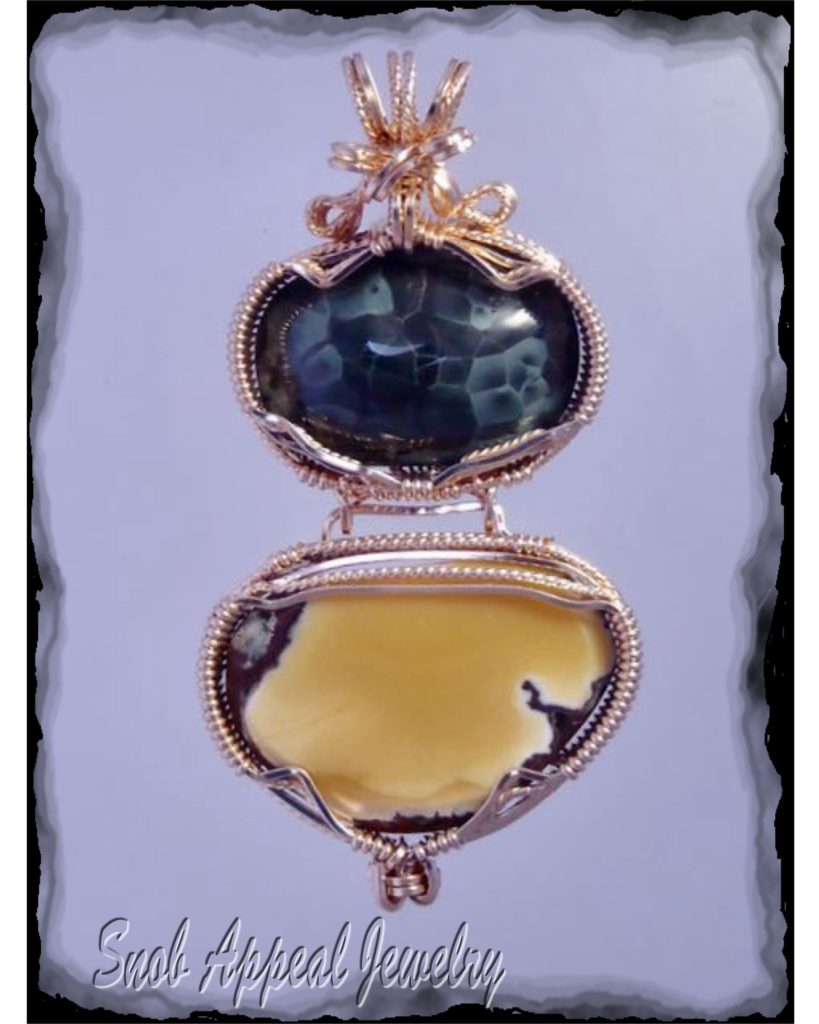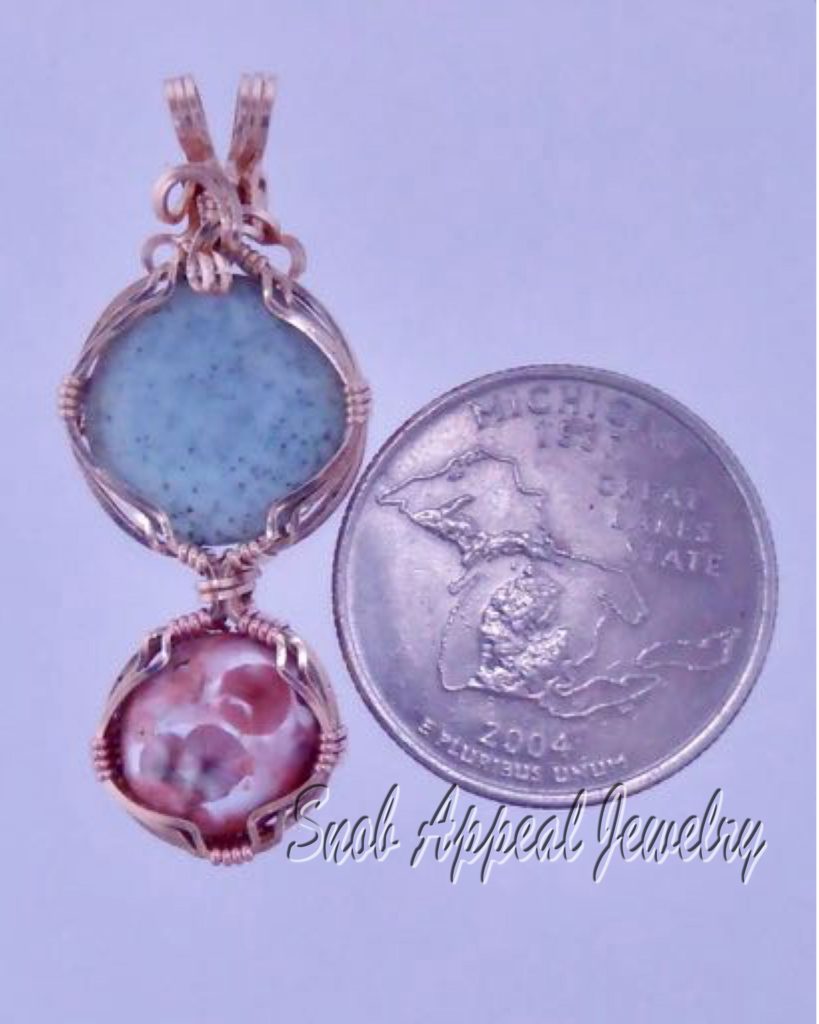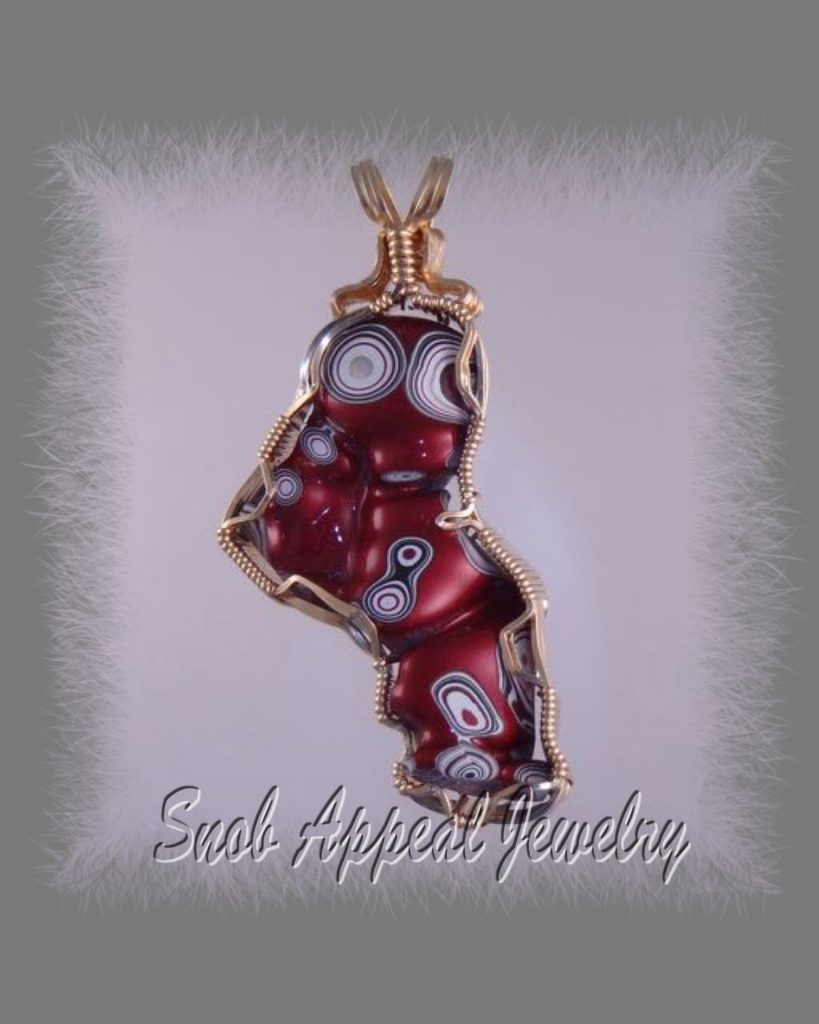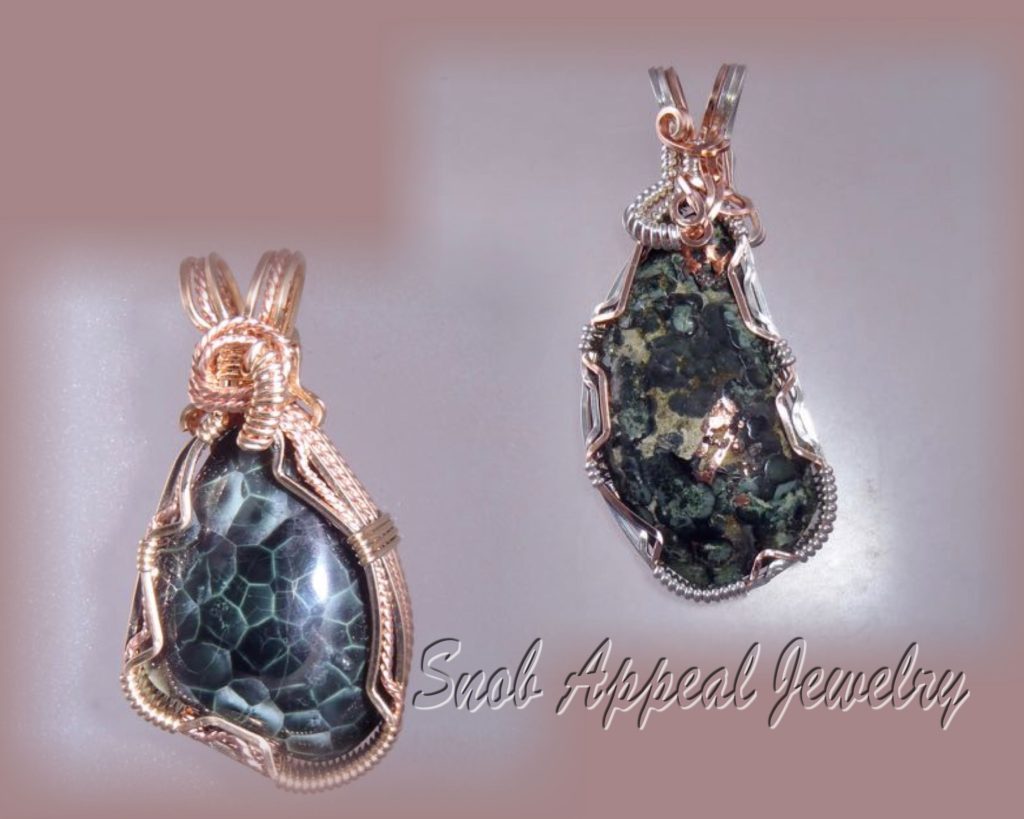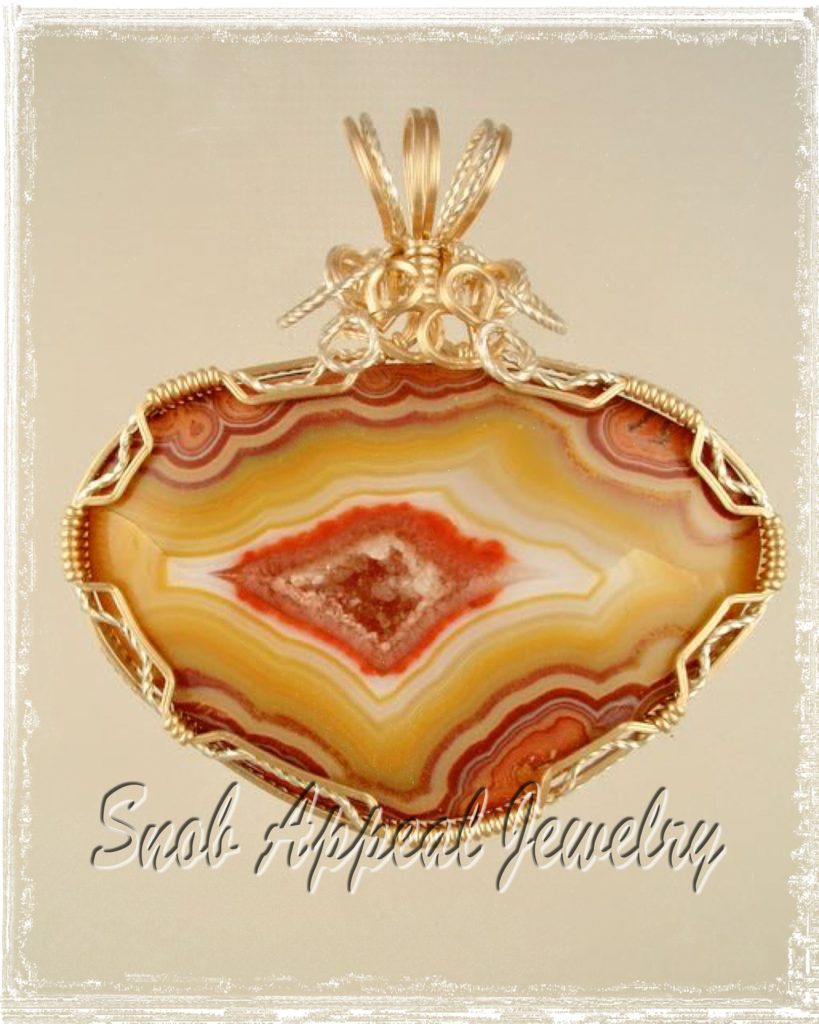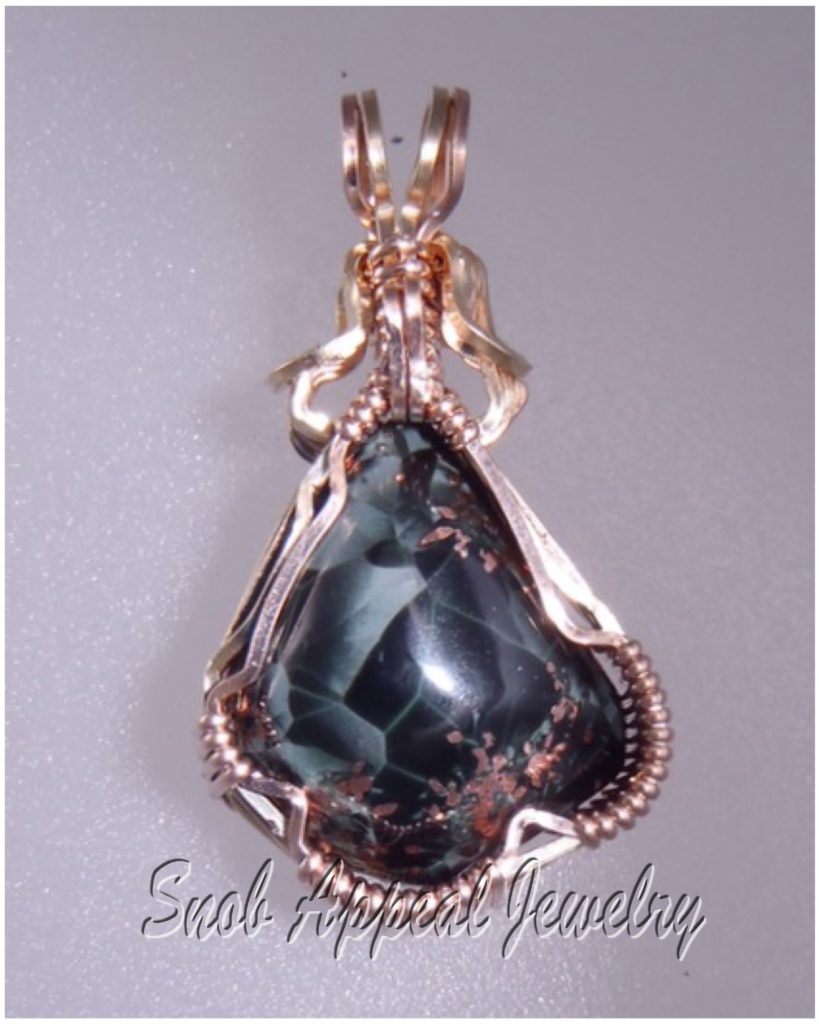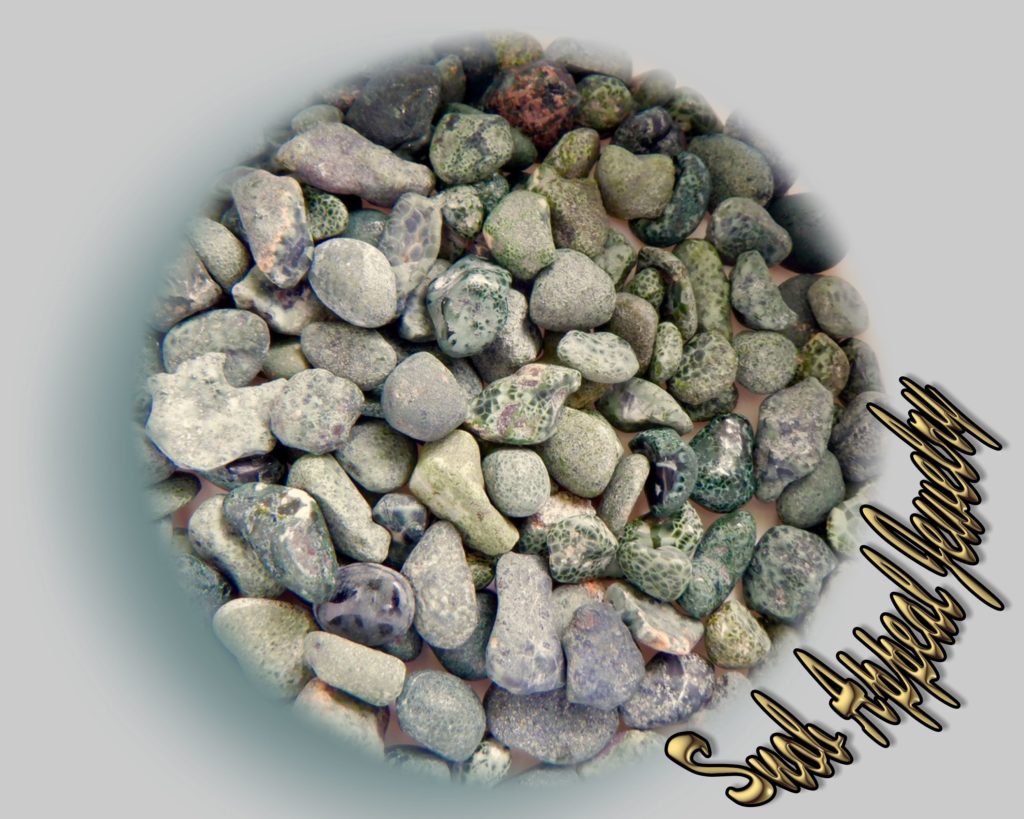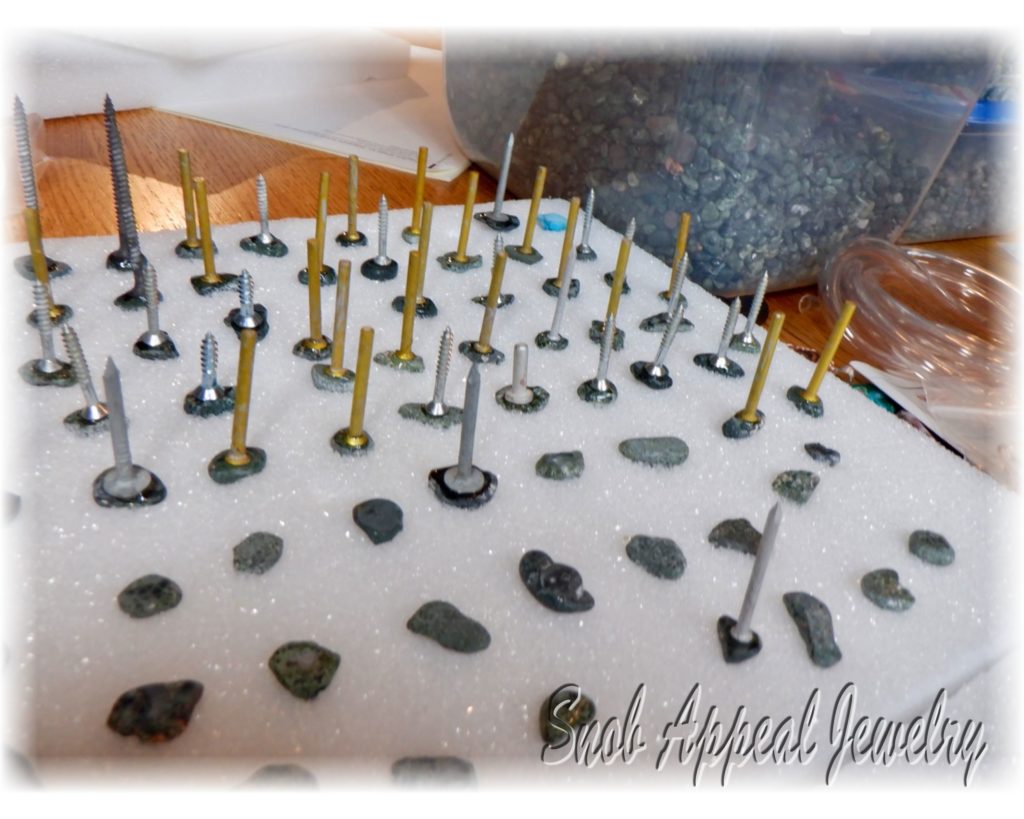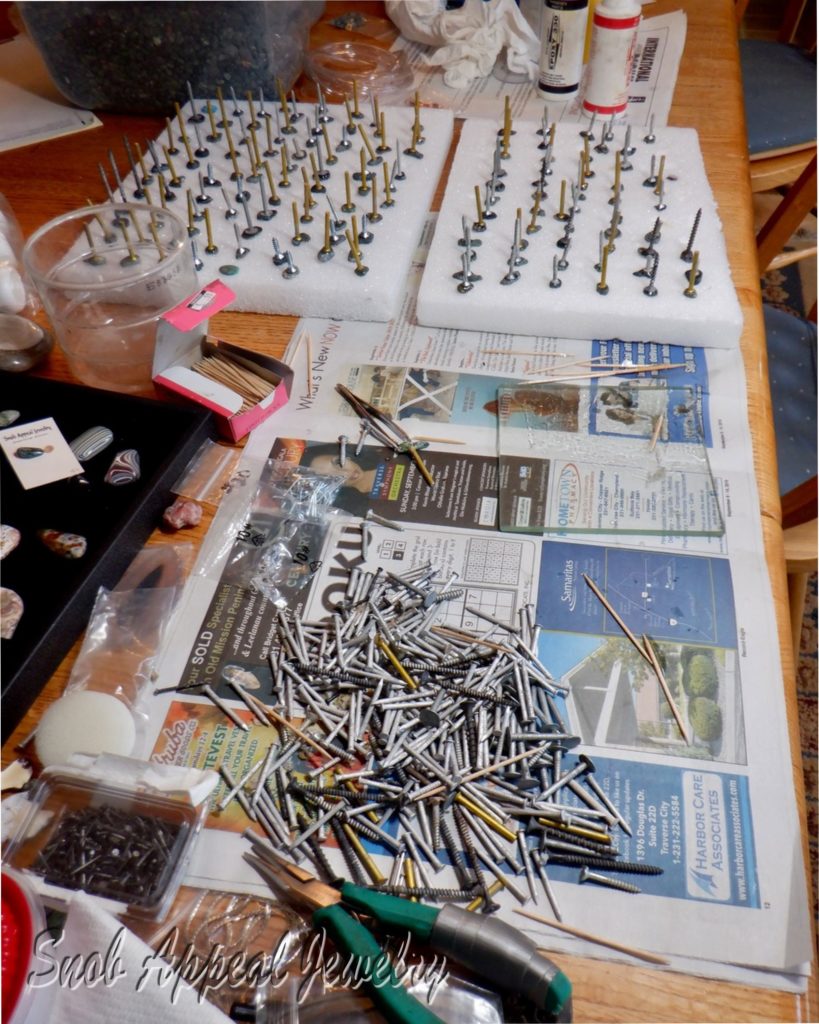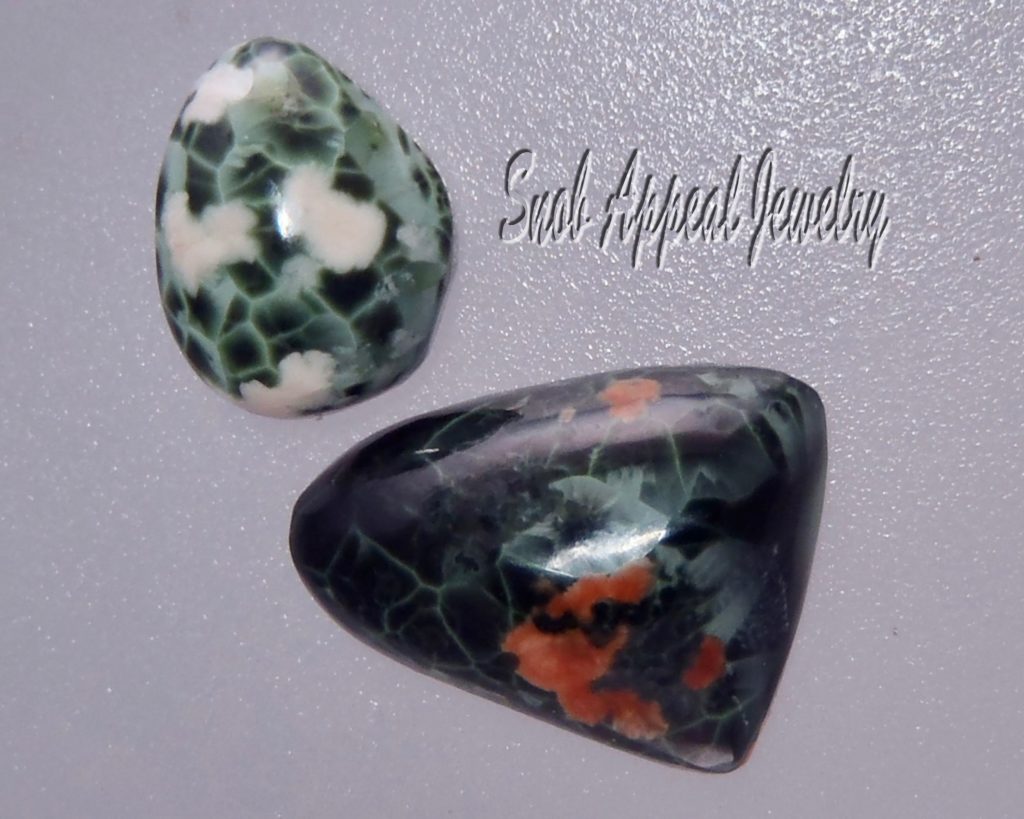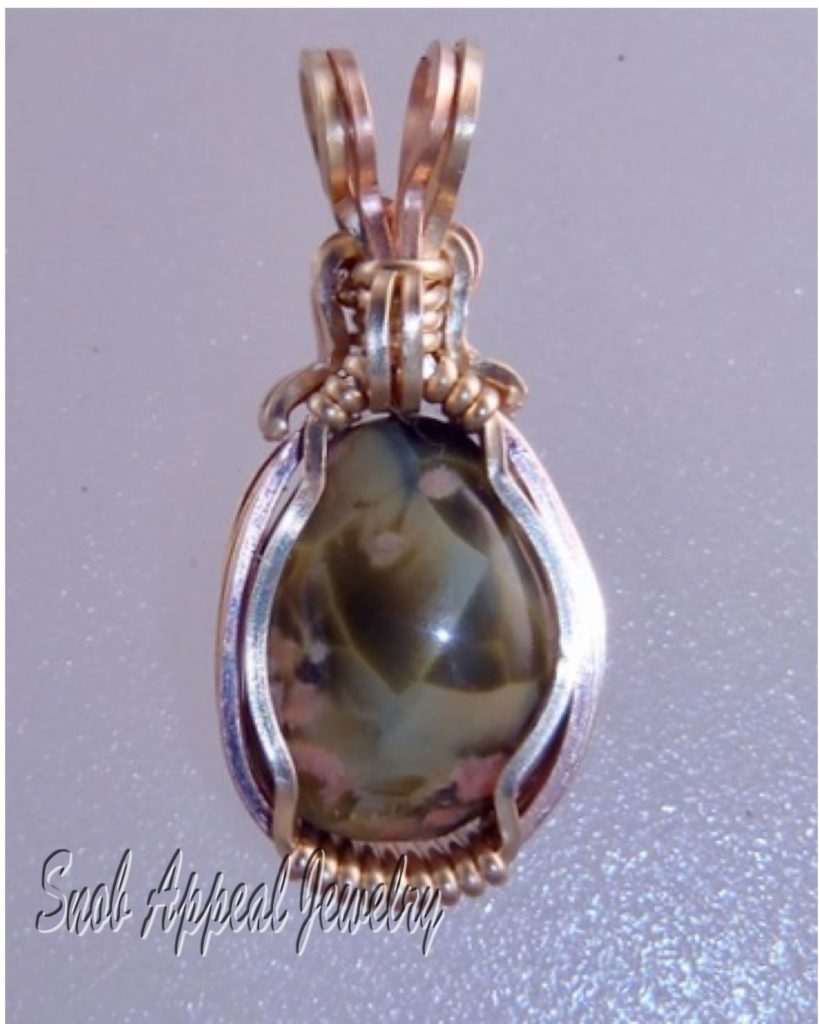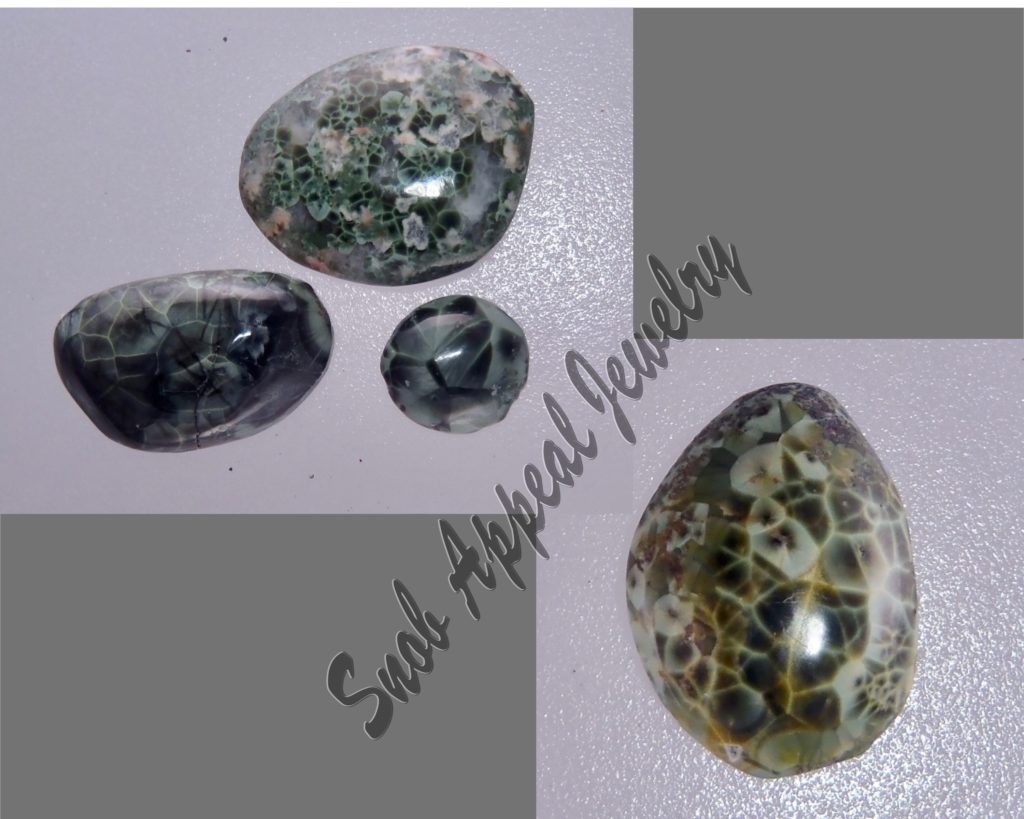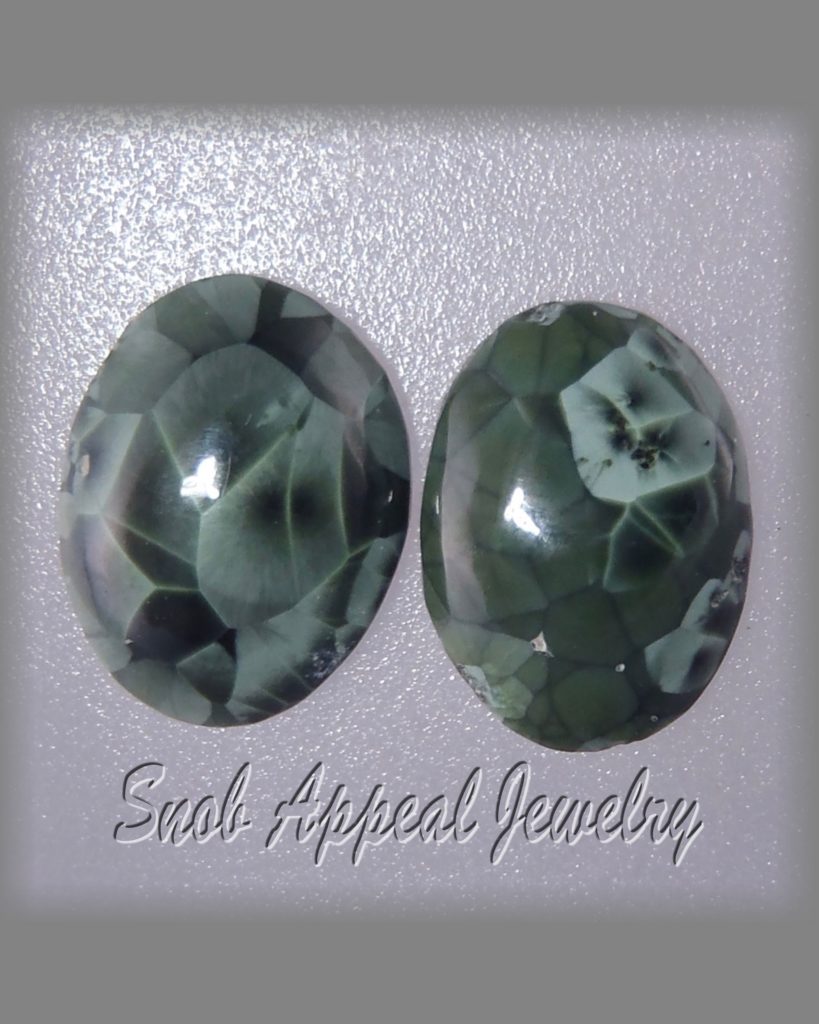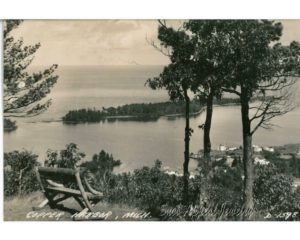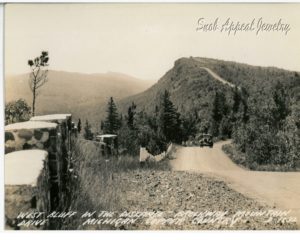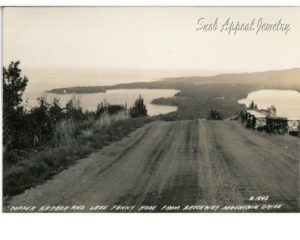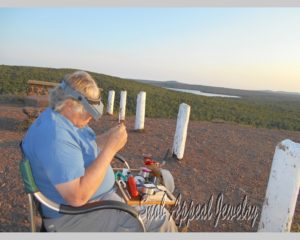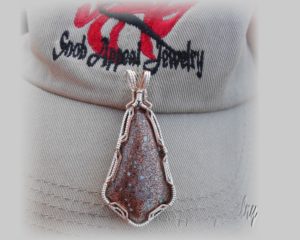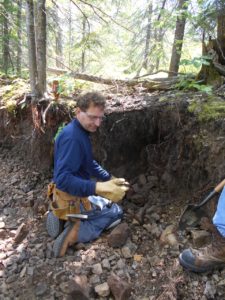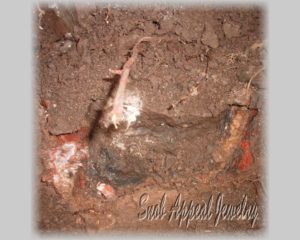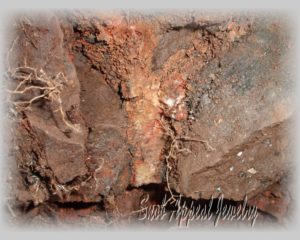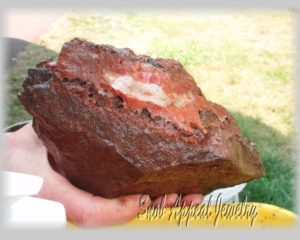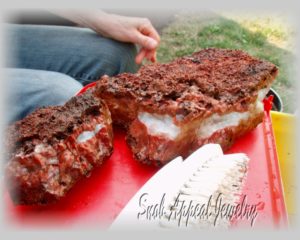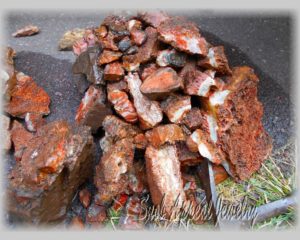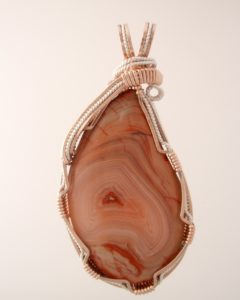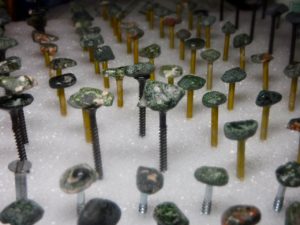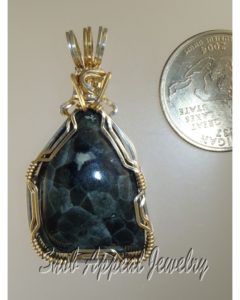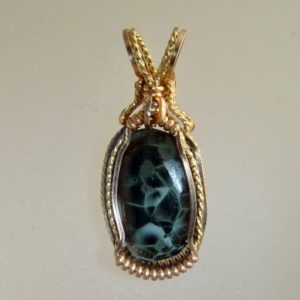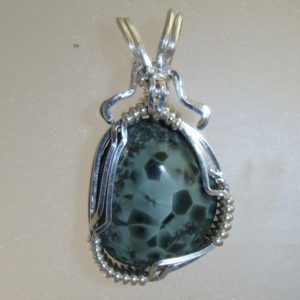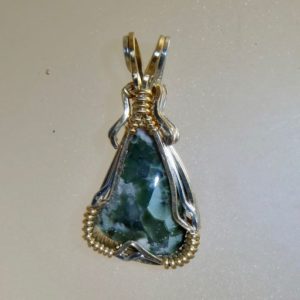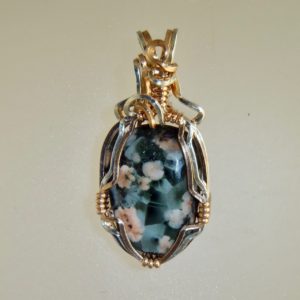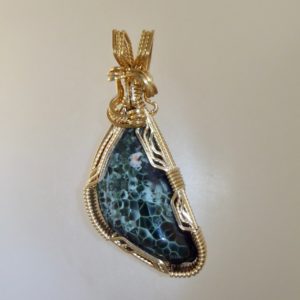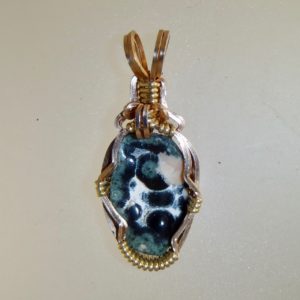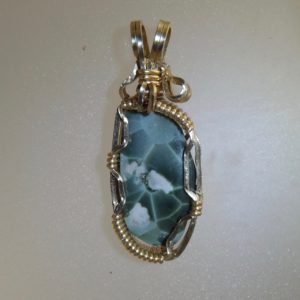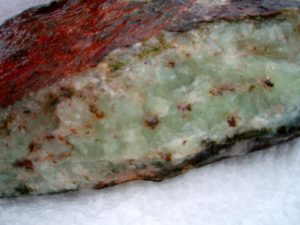
Apple Green Prehnite appears as vein material in some mine spoil piles from Calumet north. Normally it has fine Native Copper inclusions. This is some of the “Chunky” variety of Prehnite mixes. Notice that this material forms in veins, as does Patricianite, in most cases.
Before I can address how to identify Patricianite, I have to address the main ingredient–Prehnite. Prehnite occurs generally in vein material in many of the mine waste piles in the central Keweenaw Peninsula area from Calumet north to Copper Harbor. Prehnite is formed in veins and cavities in Keweenaw basalts, and is associated with other Keweenaw Minerals, including Calcite, Datolite, Chlorastrolite (Greenstone), Quartz, and Zeolites. It is also closely associated with Native Copper.
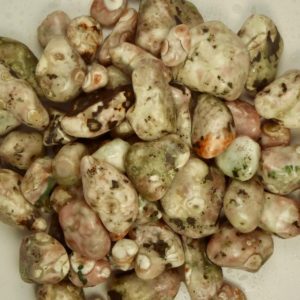
Typical Prehnite Mixes and Patricianite Beach Pebbles. These pebbles often have Copper inclusions and beautiful radiating eyes, similar to Thomsonite, hence the local name of U.P.Thomsonite is commonly mentioned.
Patricianite and Prehnite, from the Keweenaw Peninsula, come in both smooth or chunky, just like peanut butter. Smooth beach pebbles of White, Pink, and Green are not uncommon finds in the Keweenaw, The pastel colors often appear stirred together. Chunky Prehnite or Patricianite are found in the mine spoil piles, roads, or secret holes near Thomsonite Hill. The forest roads sometimes produce nice Prehnite mixes. Here’s a secret; some of the Prehnites appear white, and is often passed over on these forest roads. The colors and patterns are hidden under this thin rind and are not visable until this rind is removed.
Patricianite is a special variety of Prehnite, named by Rosendahl, in 1966, after his daughter Patricia Ann. Green Prehnite with inclusions is not considered Patricianite. In order to have Patricianite, you must three ingredients: 1. Pink Prehnite; 2. Chlorite; and 3. Visable Copper Inclusions. If any of these three elements are not visable, you do not have patricianite. (pink prehnite is light apple green prehnite containing microscopic specks of copper that have changed the green Prehnite to pink shades). The more Copper in the mix, the darker pink; I have found a few Prehnite pieces that are actually Maroon from so much Copper. If you hold these pieces in the sunlight the massive ammount of micro-copper is very evident.
I usually like to write a new blog and have it published close to the first of the month. I wanted to write about Patricianite, but I could not find a good piece anywhere. If you have so many rocks, you can’t find A rock, perhaps you have too many rocks; NOT! While searching for a nice piece of Patricianite, lo and behold, I discovered some amazing Datolite. Now I’ve become distracted by the Datolite I forgot I had. While looking through the old Datolite, I found a small slab of PATRICIANITE. At a glance, Patricianite can look like Datolite, that’s why it was there. So amazing things lost years ago (can something be lost, it you don’t know it’s lost?), were found today. Now, even though Greenstone is being worked in the shop, the Datolite is calling.
The pebbles of Prehnite found on the beaches, are generally a combination of beautiful apple green, pink, white, and other colors which appear stored together (smooth), while the mine spoil piles produce chunky seam Prehnite. Usually the seams aren’t much more then an inch wide, and if you are lucky, you can find gem green Prehnite visibly peppered with copper. Prehnite in these seams seems to form from both sides of the seams, and either meets in the middle of the seam, or there may be a gap right down the middle of the seam. Bubbly, boitrioidal, Prehnite is also found on the spoil piles. This Prehnite is translucent and has a vitreous luster. If you find one of these, you have a great specimen.
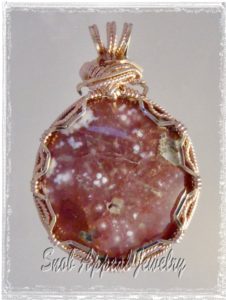
There was so much Copper in this Prehnite that the stone was Maroon. Patricianite?; Some call this Patricianite, but not the classic mix.
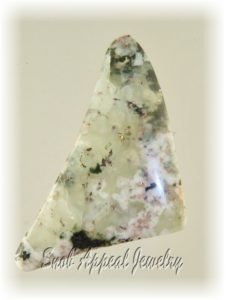
Prehnite with copper and Chlorite. No Pink, so this isnot Patricianite.
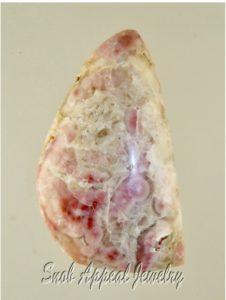
A beautiful pink and white Prehnite cab, but no evidence of Chlorite. Copper IS in there, but I can see no Chlorite.
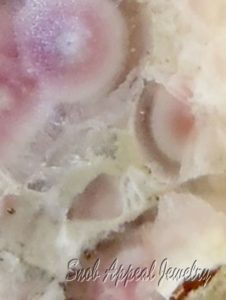
A close-up of the previous cab, reveals visible Copper, but I see no Chlorite. I believe this is Patricianite, but I would not argue the point. That Chlorite has to be in there, doesn’t it? Under magnification that triangle in there looks loke a Pseudomorph of Aragonite, doesn’t it?
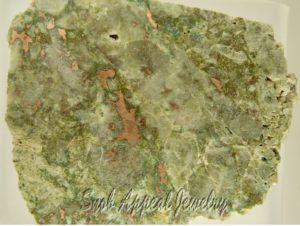
Copper and Patricianite mix, but green so Not Patricianite.
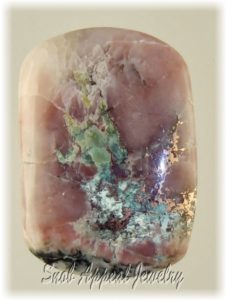
This is Patricianite; all the right ingredients and more.
Prehnite in the Keweenaw is sometimes referred to as UP Thomsonite. People used to think Prehnite was a form of Thomsonite until testing by Michigan Tech proved that it was not. Prehnite can have eyes, and radiating crystals similar to Thomsonite, but Prehnite is not a Zeolite, as is Thomsonite. TRIVIA: Prehnite is the first modern mineral named after a person. You can read about this on one of my previous blogs. https://www.snobappealjewelry.com/blog/can-you-make-jewelry-from-keweenaw-prehnite/
Prehnite is a favorite stone to make Keweenaw Stone Jewelry from, the shiny copper bits and pink and green color variations make it interesting and popular. High quality, gemmy Patricianite and Prehnite are highly prized for jewelry and collecting. Visit our Prehnite Jewelry page.
See other jewelry from Keweenaw rocks and minerals: Greenstone, Datolite, Firebrick, Mohawkite, Thomsonite, Lake Superior Agates.
Just as an aside; In order to do the research for this article I happily dug into my collection of old Rock & Mineral books. Every time I do this, I pick up little known and forgotten facts. I was reading “Rocks and Mineral of Michigan” published by the State of Michigan Department of Conservation (now the Department of Natural Resources; DNR) in 1939. It was so old it referred to MSU as Michigan State College, and MTU as Michigan College of Mining and Technology. I’ve got to re-read this book and perhaps find a new rock hunting area lost in the past.
